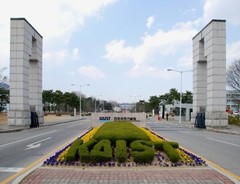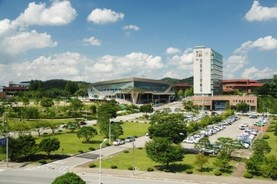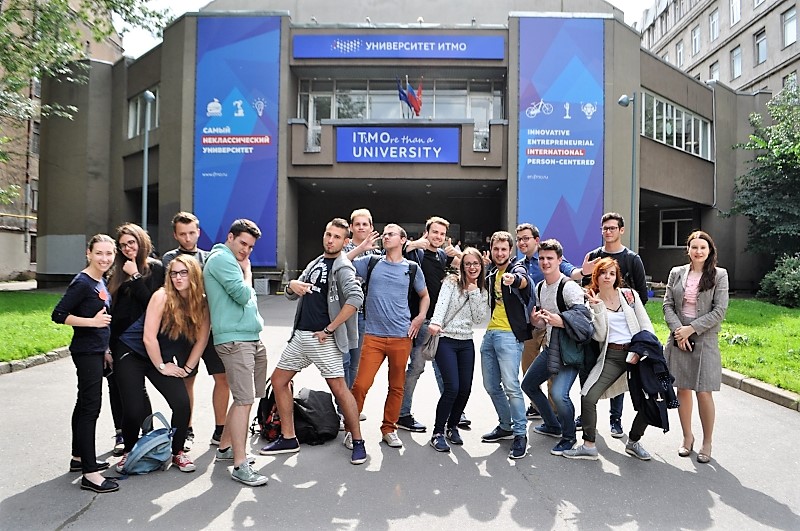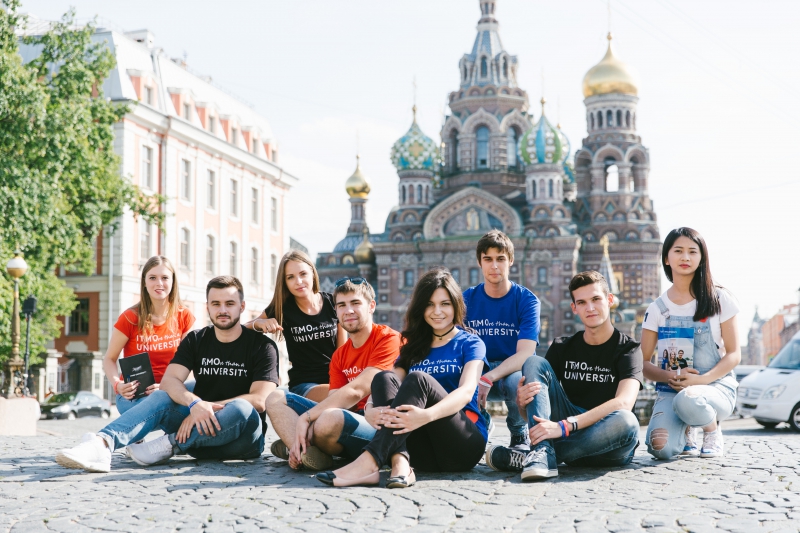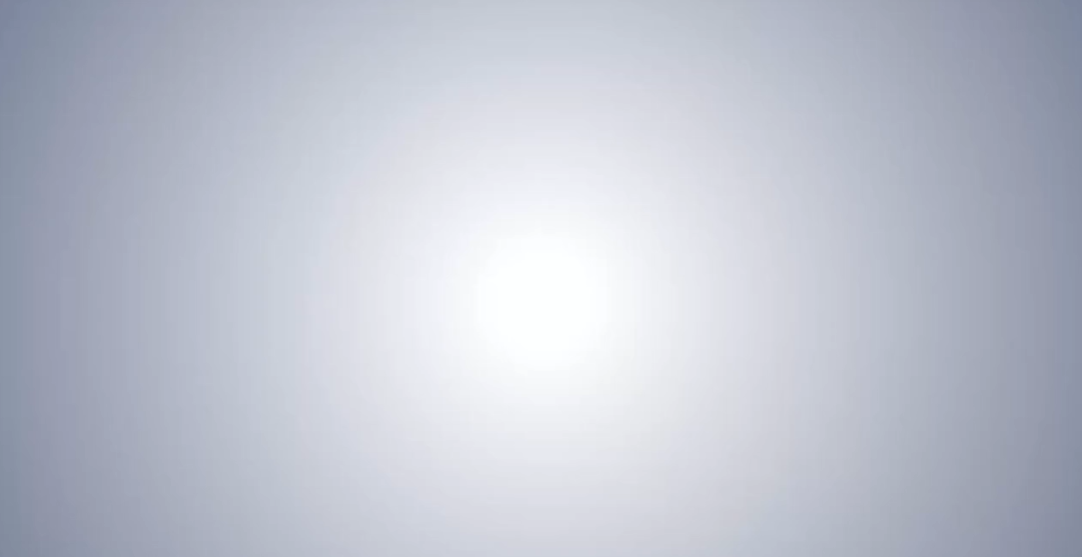Hier finden Sie unsere aktuellen Partnerhochschulen, mit denen zurzeit ein Austausch stattfinden kann.
Sie wollen einen Überblick über die ungefähren Semesterzeiten in den verschiedenen Regionen? Bitte schön. Die exakten Semesterstart- und -enddaten können im Einzelnen etwas abweichen.
Ein Hinweis aus aktuellem Anlass: Solange das Auswärtige Amt vor Reisen in eine Region warnt, unterstützen wir keine Aufenthalte dort.

Sie möchten sich eine Übersicht der Partnerhochschulen verschaffen? Hier gehts zur interaktiven Weltkarte.
Zur KarteInstituto Tecnológico Buenos Aires (ITBA)
| Short description of the institution |
ITBA is the first and leading private University in the country specialized in teaching and research in Engineering, Technology, and Management. Since 1959, ITBA has been renowned for its academic excellence and for its commitment to generating and transferring innovative knowledge to society. ITBA graduates have one of the top employment rates and entry salaries in Argentina and occupy leading positions around the globe. Among ITBA's unique traits are the strong linkages to 50 of the world's best-ranked universities, the private and public sector (500+ agreements with industry), and leading international research bodies. |
| Official Webpage | ITBA |
| Profile of partner institution | Focus on Engineering, Technology and Management |
| Fields of study |
All courses available in the following link, regardless the study field: https://sites.google.com/itba.edu.ar/itba-undergraduate-courses/home?authuser=0
|
| Participating campuses | All open to exchange |
| Language requirements |
Most courses at ITBA are taught in Spanish. B1 level Spanish certificate for courses taught in Spanish (any official certificate is accepted, including one from the home university) B2 level of English Certificate (for English courses). Accepted English certificates for KIT exchange students: TOEFL or DAAD Sprachzertifikat or Duolingo English Test (DET). |
| Academic requirements | We recommend at least 2 or 3 years of undergraduate studies before doing the exchange. |
| Courses |
Students need to reach 12 ITBA credits per semester. |
| Semester dates |
1st semester: March to July 2nd semester: August to December |
| Visa Information | Auswärtiges Amt |
| Information for exchange students | |
| Number of students for exchange | approx. 4 / semester |
| Last Update | March 2025 |
Universidad Tecnológica Nacional (UTN)
| Short description of the institution |
The National Technological University has two characteristics that distinguish it from the rest of the national college system: UTN is the only university in the country whose academic structure has engineering as a priority. UTN is federal in nature, covering all regions of Argentina. It has 30 Regional Colleges/ Campus, a Higher National Institute of Technical Teachers, one Academic Unit and extensions geographically distributed throughout the territory of Argentina. |
| Official Webpage | |
| Profile of partner institution |
85,000 students, 66,000 engineering students, equivalent to more than 40% of all engineering students in the country. The UTN academic offer in numbers: 10 PhDs; 21 Master's degree; 28 Specializations; 17 Degree Careers; 109 Accredited Degree Courses; 21 Bachelor's degree Cycles; 55 Undergraduate technique careers The research and technological development efforts of the UTN are empowered by the collaboration with other public and private universities, and through agreements with national and provincial science and technology promotion agencies. More than 1800 teacher-researchers with graduates and students carry out the projects, which are distributed in 14 thematically organized programs with research and development priority. |
| Fields of study | All fields are open to exchange |
| Participating campuses | All open to exchange. However, some regional faculties may not accept incoming students for the second term (August-December) given that most courses are taught anually and they start in March. |
| Language requirements |
B1 level of Spanish is required. |
| Academic requirements |
Two completed years of the programme of studies at home university prior to participation in the exchange |
| Courses |
List of modules available for exchange students can be found here. |
| Semester dates |
1st Semester: March to August 2nd semester: August to December |
| Visa information | Link |
| Information for exchange students | |
| Number of students for exchange | approx. 2 / semester |
| Last Update | April 2025 |
Universidad Nacional de San Martín (UNSAM)
| Short description of the institution |
UNSAM, Argentine state university founded in 1992, has become a leader in higher education, research, cultural development and social transformation. More than a hundred undergraduate and graduate programs are offered in a variety of fields, which include the following: Science and Technology Humanities and Social Sciences Arts Other areas. The campus is built around former railway lines and train repairshop buildings, and it has become a privileged space for teaching, research, cultural development and social interaction among members of UNSAM’s community. It has developed strong, research-led partnerships with a range of leading universities in the world: UNSAM has signed nearly 400 international agreements, which have resulted in various research projects, as well as students and teachers’ exchange programs. |
| Official Webpage | http://www.unsam.edu.ar/ |
| Profile of partner institution | National University / Focus in research and innovation |
| Fields of study |
All fields of study, undergraduate and graduate level. However, participation in materials engineering and nuclear engineering classes requires the acceptance of the carrear headmaster. The Dan Benninson Institute and the Sabato Institute work with very small and closely-knit groups, making it challenging to access the academic offerings they provide. Applications within the framework of projects participating in the Strategic Partnership UNSAM - KIT (SPUK) are especially welcome. |
| Language requirements |
B1 level of Spanish is required. However, B2 level of Spanish is recomended. Most of the undergraduate classes are in Spanish. |
| Academic requirements |
It is recommended that students have completed at least two years of study by the start of their mobility. Students interested in postgrad level studies require one academic recommendation letter included in their internal application at KIT International Students Office before the deadline (June 10). |
| Courses | Carreras |
| Semester dates |
1st Semester: March to July 2nd semester: August to December |
| Visa information | Auswärtiges Amt |
| Information for exchange students | |
| Number of students for exchange |
approx. 2 / semester Die Kooperation ist noch relativ frisch - Start des ersten Austauschs im Jahr 2024. Mit dem ersten Erfahrungsbericht ist Anfang 2025 zu rechnen. |
| Last Update | March 2025 |
Queensland University of Technology (QUT)
| Short description of the institution | We're well known as 'a university for the real world' because of our close links with industry and our relevant teaching and applied research. Industry representatives and professionals contribute to our course development, adding a practical perspective to theoretical education. Our academic staff consult in industry and work on industry projects which often involve students. Staff and students have access to the latest teaching technology. |
| Official Webpage | Link |
| Profile of partner institution | Focus on Business, Engineering, Science and Technology () |
| Fields of study |
All open to exchange; undergraduate and graduate level, some study areas have restrictions eg. Health disciplines – Podiatry, Paramedic Science, Optometry and Vision Science, Medical Imaging, Radiation Therapy, Pharmacy and PG Psychology. Refer to 'What Can I Study' website for full list of available units. |
| Language requirements |
Be advised that the DAAD language certificate is not listed on the QUT website under valid english language proficiency tests, but is still valid due to an agreement between QUT and KIT.
(Note that in all cases, on occasion the Department of Home Affairs may ask for one of their approved English language tests for the purpose of applying for a visa. If that happens, only one of their approved English language tests will be accepted for visa application purposes, regardless of how English has been satisfied for course admission.)
No acceptance of the TOEFL ibt Home Edition. |
| Academic requirements |
|
| Other requirements |
You must:
|
| Courses | |
| Semester dates |
1st semester: February – June 2nd semester: July – November |
| Visa Information | Auswärtiges Amt |
|
Information for exchange students |
|
| Number of students for exchange |
Approx. 2 / semester |
| Last Update | April 2025 |
University of Technology Sydney (UTS)
| Short description of the institution |
UTS is a public university of technology defined by our support for the economic, social and cultural prosperity of our communities. UTS is a reflection of Sydney’s multicultural diversity. With around 42,600 students from 120 different countries Our campus is in the heart of Sydney's creative and digital precinct and alongside Sydney's central business district. When not in class, adventure awaits you! Bars and restaurants are on our doorstep, the beautiful Sydney Opera House is just 15 minutes away by train or take it easy on one of Sydney’s many beautiful beaches. |
| Official Webpage | Link |
| Profile of partner institution |
Focus Business, Engineering, IT, Science, Design and Architecture, Communications; and Health. |
| Fields of study |
Subjects and Academic Information Research/thesis subjects are not available to Study Abroad and Exchange students.
|
| Participating campuses | All open to exchange |
| Language requirements |
Applicants have to prove a sufficient knowledge of the English language. For KIT students, there are two options to do so:
Test scores must be less than 2 years old at the time of application at UTS (Oct for 1st semester entry, March for 2nd semester entry). UTS continues to accept the TOEFL Home Edition.
(Note that in all cases, on occasion the Department of Home Affairs may ask for one of their approved English language tests for the purpose of applying for a visa. If that happens, only one of their approved English language tests will be accepted for visa application purposes, regardless of how English has been satisfied for course admission.)
More information, especially on min. language scores/levels can be found here. |
| Academic requirements |
You must have completed one full year or more of study at the time of application (min. 60 ECTS). A "credit" or "good" average or a cumulative Grade Point Average (GPA) of 2.5 on a 4.0 point scale, or average grade of "C" or better on the European ECTS grading scale / 3,0 or better on the German grading scale. The GPA will refer to the calculation on their most recent transcript given that transcript shows at minimum, 60 ECTS completed. (For example, if a student provides a postgraduate and undergraduate transcript, but the postgraduate transcript has only 30 ECTS completed, we will revert to assessing the undergraduate transcript for academic eligibility.) |
| Courses | |
| Semester dates |
1st semester: February – June (Autumn Semester) 2nd semester: July – November (Spring Semester) Please note students studying Education subjects may be required to commence in February, instead of March. (More Information) |
| Visa Information | Auswärtiges Amt |
| Information for exchange stundents | |
| Number of students for exchange | Approx. 1 / semester |
| Last Update | March 2025 |
University of Wollongong
| Short description of the institution |
Our courses have been developed by teachers who are leading their fields. Our student-focused approach to teaching and learning means you will have the guidance and support you need. And this all takes place in a city on one of Australia’s most beautiful coastlines. Experience the best of the Australian lifestyle - sun, sport, and outdoor living, all while earning credit towards your degree. https://www.uow.edu.au/study/study-abroad-exchange/studyabroad/why-choose-wollongong/ |
| Official Webpage | https://www.uow.edu.au (CRICOS Provider Number 00102E) |
| Fields of study | |
| Participating campuses | All Australian campuses open to exchange |
| Language requirements |
Applicants have to prove a sufficient knowledge of the English language. For KIT students, there are two options to do so:
The English test must have been taken within two years of commencement of study at UOW. (Note that in all cases, on occasion the Department of Home Affairs may ask for one of their approved English language tests for the purpose of applying for a visa. If that happens, only one of their approved English language tests will be accepted for visa application purposes, regardless of how English has been satisfied for course admission.) |
| Academic requirements |
|
| Courses | |
| Semester dates |
Semesters for Bachelor students: Trimesters for Postgraduate students: |
| Visa Information |
https://immi.homeaffairs.gov.au/visas/getting-a-visa/visa-listing |
| Information for exchange stundents |
Exchange at UofW: https://www.uow.edu.au/study/study-abroad-exchange/studyabroad/ Student handbook: https://www.uow.edu.au/student/handbook/ Student support: https://www.uow.edu.au/student/support-services/support-for-international-students/ Accommodation: https://www.uow.edu.au/study/accommodation/ |
| Number of students for exchange |
Approx. 2 / semester This is a new partnership. The first exchange can take place during 2027. |
| Last Update | September 2025 |
Centro Universitário FEI
| Short description of the institution |
The Centro Universitário FEI, is formed by high-profile teaching staff and courses strongly focused on theoretical knowledge and experimental/practical activities providing the students excellent development conditions in their areas of study. The campuses located in São Bernardo do Campo and São Paulo offer excellent infrastructure, which comprises a computerized library with several databases available, laboratories with high technology equipment and research, and computer centers. The Centro Universitário FEI encourages the development of teaching and academic projects by students and professors. |
| Profile of partner institution |
Focus on Administration, Engineering, Technology and Innovation. |
| Fields of study |
all fields are open to exchange, at the undergraduate and graduate levels |
| Participating campuses | All open to exchange; The São Paulo campus only offers courses in Business Administration (undergraduate, master and doctorate). All the other programs, including also undergraduate in Business Administration, is offered in the São Bernardo do Campo campus. |
| Language requirements |
All courses are taught in Portuguese. It is mandatory for the student to have an intermediate / advanced knowledge in Portuguese language in order to attend classes and follow other academic activities. An interview by videoconference/Skype might be requested before acceptance. |
| Academic requirements |
Two completed years of study prior to participation in the exchange |
| Courses |
Administration / Computer Science / Data Science and Artificial Intelligence / Automation and Control Engineering / Chemical Engineering / Civil Engineering / Electrical Engineering / Mechanical Engineering / Production Engineering / Robotics Engineering |
| Semester dates |
1st semester: February – June 2nd semester: August – December |
| Visa information | Auswärtiges Amt |
| Information for exchange students | |
| Number of students for exchange | approx.2 / semester |
| Last Update | March 2025 |
Universidade de São Paulo (USP)
| Short description of the institution |
USP is one of the most prestigious higher education and research institutions in Brazil and figures among the best universities in the world. With several campuses distributed over eight cities (Bauru, Lorena, Piracicaba, Pirassununga, Ribeirão Preto, Santos, São Carlos and São Paulo) within the state of São Paulo, USP has almost 98,000 undergraduate and graduate students and over 5,600 faculty members. The schools of USP cover most disciplines and provide students with a fertile study and research environment. |
| Official Webpage | Webpage of USP |
| Profile of partner institution | Focus on Business, Humanities, Science and Engineering |
| Fields of study |
All open to exchange. Exception: The School of Architecture and Urbanism and the School of Economics, Business and Accountancy are not recommended due to a large number of applicants. |
| Participating campuses | All open to exchange, USP has campuses in seven different cities |
| Language requirements |
Portuguese is the main language of instruction at USP. We strongly recommend that students nominated for exchange studies at USP have a good command of Portuguese in order to attend classes (at least B1 level according to the CEFR by the time the semester starts). The School of Education (FEUSP) accepts students with a basic knowledge of Portuguese (A1 level). For information on the availability of study options possibly taught in English, please refer to the Local International Offices operating at the faculty level. (https://internationaloffice.usp.br/en/index.php/institutional/usp-units-offices/) |
| Academic requirements |
|
| Courses | |
| Semester dates |
1st semester: February – June 2nd semester: August – December |
| Visa information | Auswärtiges Amt |
| Information for exchange students |
https://internationaloffice.usp.br/en/ USP International Cooperation Office » Student Exchange Programmes USP International Cooperation Office » Exchange Programme for Undergraduate Students USP International Cooperation Office » Graduate Education – Research Placement |
| Number of students for exchange | Approx. 5 / semester |
| Last Update | March 2025 |
Universidade Federal do Paraná (UFPR)
| Short description of the institution |
Universidade Federal do Paraná (UFPR), established in 1912, is a symbol of Curitiba, the capital city of the state of Paraná. It is one of the Top Ten Brazilian universities by any standard and stands among the 25 most prestigious in Latin America. UFPR is deeply commited to education, science, technology, innovation, culture and citizenship in benefit of the people of Paraná. UFPR is a comprehensive public institution of higher education, financed in part by the federal budget, especially at the undergraduate level, as well as through federal and state research agencies and partnerships with the industries, both public and private, at the graduate level and research. |
| Official Webpage | https://ufpr.br/ |
| Participating campuses |
All fields are open to exchange. |
| Language requirements |
Since UFPR courses are in Portuguese, B1 level Portuguese is desirable. |
| Academic requirements | We suggest at least 2 years of study at home institution (undergraduate). |
| Courses | https://ufpr.br/cursos-em-curitiba/ |
| Semester dates |
1st semester: Feb - July 2nd semester: August - December |
| Visa information | Auswärtiges Amt |
| Information for exchange students |
https://internacional.ufpr.br/portal/application-procedures/ |
| Number of students for exchange |
Approx. 2 / semester Diese Kooperation ist neu - die ersten TeilnehmerInnen des Programms können im Jahr 2026 an der UFPR studieren. |
| Last Update |
April 2025 |
Universidade Federal do Rio de Janeiro (UFRJ)
| Official Webpage | Link |
| Profile of partner institution | Focus on Engineering. (More information) |
| Fields of study |
All open to exchange (except Medical School (Internships)), undergraduate and graduate level. |
| Language requirements |
Sufficient knowledge of the Portuguese language (A1 Minimum for most courses). However, it is highly advised that students have at least an intermediate proficiency in portuguese (level A2/B1), because most of the courses at UFRJ are taught in Portuguese. |
| Academic requirements |
Two completed years of study prior to participation in the exchange Students interested in exchange at UFRJ require one academic recommendation letter included in their internal application at KIT International Students Office before the deadline (June 10). |
| Courses |
Complimentary Portuguese Language courses are offered to all international students during their mobility period. |
| Semester dates |
1st semester: March – July 2nd semester: August – December |
| Visa information | Auswärtiges Amt and Student Visa Registration Guide |
| Information for exchange students | |
| Number of students for exchange |
approx. 3/year This exchange is being re-opened, allowing exchange again starting March 2027. |
| Last Update | Sept 2025 |
Universidade Federal do Rio Grande do Sul (UFRGS)
| Short description of the institution |
The Federal University of Rio Grande do Sul (UFRGS) is one of the five largest and most qualified universities in Brazil. It is considered one of the most important higher education institutions in Latin America. The UFRGS International Campus is a platform for the development of integrated actions of internationalization, through which UFRGS strategically consolidates and expands its international cooperation. |
| Official Webpage | http://www.ufrgs.br/ |
| Participating campuses |
All fields are open for exchange; undergraduate level. |
| Language requirements |
An intermediate level of Portuguese is strongly recommended, since the classes are taught in Portuguese. However, UFRGS offers a course of Portuguese as a second language to its international students with competitive prices. |
| Academic requirements | Applicants must have completed at least thirty percent (30%) of the compulsory credits of their course and two years of study prior to participation in the exchange |
| Courses | List of courses |
| Semester dates |
1st semester: March - July 2nd semester: August - December |
| Visa information | Auswärtiges Amt |
| Information for exchange students | |
| Number of students for exchange | Approx. 3 / semester |
| Last Update |
March 2025 |
Pontificia Universidad Católica de Chile (UC)
| Profile of partner institution | Focus on Business, Science, Economics, Architecture and Engineering |
| Offical Webpage | Link |
| Fields of study |
Agriculture, Architecture, Arts, Design, Economics, Engineering, Humanities (Letters, History, Political Sciences), Medicine, Social Sciences & Urban Studies. Please check the restricted areas before applying. Undergraduate level only. Graduate students can apply, but they can only take courses at undergraduate level. |
| Participating campuses | all open to exchange |
| Language requirements |
Most of the courses at UC are taught in Spanish. Updated Spanish language proficiency certificate (level B2 according to CEFR), only if you are not a native speaker. DELE, SIELE or a letter from the Spanish department of the home university accrediting the B2 level must be submitted. The certificate must be delivered within UC Chile's application period. In the event of duly substantiated exceptions, students who accredit a B1 CEFR level of Spanish may apply as long as they obligatorily enroll in the B2 Spanish course at UC Chile. Level of English proficiency mandatory only for the Latin American studies program TOEFL 80. Please also check Requirements here. |
| Academic requirements |
GPA 3.0 (on a 4.0 score) or equivalent. Students with lower level than established will not be accepted in the exchange. Two completed years of study prior to participation in the exchange. Please also check Requirements here. |
| Courses |
Catálogo de cursos (referential information, the availability of vacancies for the courses on this list varies each semester.)
Undergraduate students should complete in one semester between 30 and 50 UC credits (most of the courses at UC are 10-credit courses). Exchange students are allowed to register for courses from different areas. |
| Semester dates |
1st semester: March – July 2nd semester: August – December |
| Visa Information | |
| Information for exchange students |
Piane UC: Learn more about students with special educational needs and the support they can receive through Piane UC. |
| Number of students for exchange | approx. 2 / semester |
| Last Update | March 2025 |
Universidad de Chile (UChile)
| Profile of partner institution | Focus on Business, Science, Economics and Architecture |
| Offical Webpage | Link |
| Fields of study |
Undergraduate level. All fields are open to exchange (except Performing Arts, Music, Labs, Rotations). Faculty of Medicine and Dentistry, medical rotations and clinical internships are closed to international students. |
| Participating campuses | all open to exchange |
| Language requirements |
B1 of Spanish (DELE), whereas: - B2 for the School of Medicine - C1 for Philosophy and Humanities and Social Sciences advisable |
| Academic requirements |
|
| Courses | The academic offer can be checked out here: Catálogo Programa Movilidad (uchile.cl) It is recommended to go over the catalogue of previous semesters, since most of the subjects are repeated year after year. |
| Semester dates |
1st semester: March – July 2nd semester: July – December |
| Information for exchange students | |
| Number of students for exchange | approx. 2 / semester |
| Last Update | March 2025 |
Universidad de Concepción (UDEC)
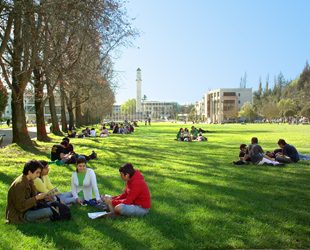
|
Short description of the institution |
The Universidad de Concepción is the third most important in Chile and has a beautiful campus near the city. |
| Offical Webpage | Link |
| Profile of partner institution | Focus on Business, Science, Economics and Engineering |
| Fields of study |
All fields of study are open for exchange (undergraduate and graduate level), with exception of clinical rotations in the area of health. |
| Participating campuses | all open to exchange |
| Language requirements |
Because most of the courses at UDEC are taught in Spanish, B1 level of Spanish is required (Certificado Instituto Cervantes/Certificado Servicio Internacional de Evaluación de la Lengua Española (SIELE)/Accreditation of level reached at Institution of origin) |
| Academic requirements |
|
| Courses |
Undergraduate Catalogue of Master |
| Semester dates |
1st semester: March - July 2nd semester: August - December |
| Information for exchange students | |
| Number of students for exchange | approx. 3 / semester |
| Last Update | March 2025 |
Universidad de La Frontera (UFRO)
| Short description of the institution | Located in the Region of the Araucanía, Chile, the Universidad de La Frontera (UFRO) is a state,public institution of higher learning, considered among the best universities in the country based on its remarkable indicators of quality and excellence. The University offers 45 undergraduate programs, 9 doctoral programs, 31 master’s programs, 17 programs in medical specialties, 5 programs in dentistry specialties, 8 specialty programs in nursing, a specialty program in midwifery, a specialty program in computer science and a specialty program in medical physics. It has over 8,500 students in its undergraduate programs, spread across six Faculties, and more than 800 students in its graduate programs. |
| Offical Webpage | Link |
| Profile of partner institution | Focus on Business, Science, Economics and Engineering |
| Fields of study |
BIOQUÍMICA All fields open to exchange; undergraduate and graduate level. |
| Participating campuses | all open to exchange |
| Language requirements |
Undergraduate level: Spanish B1, because most of the courses at Frontera are taught in Spanish. Graduate level: Spanish B2 (must be certified by the home university or another valid certificate external to the university) |
| Academic requirements |
One completed year of study prior to participation in the exchange Applicants need a minimum GPA of 4.0 on a 7.0-point scale. (Chilean scale) |
| Courses |
Universidad de La Frontera - Catálogo de Asignaturas
During the second semester (August–December), students may only select courses from levels 2, 4, 6, and 8. |
| Semester dates |
1st semester: March – July 2nd semester: August - December |
| Information for exchange students | |
| Number of students for exchange | approx. 3 / semester |
| Last Update |
April 2025 Cooperation agreement will expire after 2027. Final student exchanges can take place until end of 2027. |
Universidad Técnica Federico Santa María (USM)

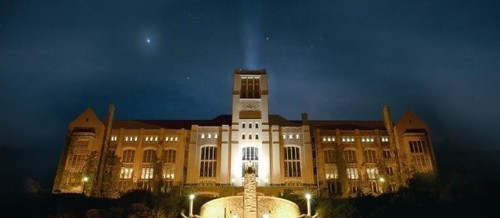
| Short description |
Founded in 1931, the USM is recognized as one of Latin America's best universities for its scientific and technological excellence. The USM is a Nonprofit Private Foundation, with the character of private university, belonging to the Chilean Universities President Council (CRUCh). The USM offers 84 programs at Undergraduate (17.000 students) and Postgraduate level (3.000 students). |
| Offical Webpage | Link |
| Profile of partner institution | Focus on Engineering, Science and Technology. Although humanistics courses are also offered. (More information) |
| Fields of study |
Undergraduate and graduate level. Areas of study: Engineering, Science, Technology, Business and Architecture All fields are open to exchange, except of professional (part-time and or evening) courses. |
| Participating campuses |
Valparaíso – Main Campus: Architecture, Electronics,
|
| Language requirements |
The minimum required level of Spanish for international exchange students to be accepted unconditionally is B1 (CEFR), while students on A2 level are also accepted but with the condition of joining the Intensive Spanish course before the semester start date. Note: while a very small selection of courses may be offered in |
| Courses |
Exchange students must take a minimum of 10 USM credits per semester. A two-week intensive Spanish course is offered before the beginning of each semester. An additional fee applies as this course is not part of the regular academic offering. Multiple levels of Spanish courses are offered for foreign students as part of the regular academic offering during each semester. Students may take courses from different departments, |
| Semester dates |
1st semester: February/March – July 2nd semester: August – December |
| Information for exchange students |
Promo video |
| Number of students for exchange | approx. 2 / semester |
| Last Update | May 2025 |
Beijing Institute of Technology (BIT)
| Offical Website | http://english.bit.edu.cn/ |
| Profile of partner institution | Focus on Management, Science and Engineering. |
| Fields of study |
all open to exchange, undergraduate and graduate level MBA program is only available to graduate students in the same background. |
| Participating campuses | all open to exchange |
| Language requirements |
For attending English-taught programs:
For attending Chinese-taught programs:
No HSK level is required for attending intensive Chinese Language program https://isc.bit.edu.cn/admissionsaid/essap/internationalexchange/index.htm |
| Academic requirements |
|
| Other requirements | BIT cannot accept students with Chinese Nationality. |
| Courses | |
| Semester dates |
1st semester: September – January 2n semester: February – July |
| Visa Information | Auswärtiges Amt |
| Information for exchange students | |
| Number of students for exchange | approx. 5 / semester |
| Last Update | Aug 2024 |
Shanghai Jiao Tong University (SJTU)
| Short description of the institution | Shanghai Jiao Tong University (SJTU), as one of the higher education institutions which enjoy a long history and a world-renowned reputation in China, is a key university directly under the administration of the Ministry of Education (MOE) of the People's Republic of China and co-constructed by MOE and Shanghai Municipal Government. Through some 120 years' unremitting efforts, SJTU has become a comprehensive, research-oriented, and internationalized top university in China. |
| Official Webpage | Link |
| Profile of partner institution | Focus on Economics, Science and Engineering. |
| Fields of study |
SJTU has 30 schools/departments in Sciences, Engineering, Life Sciences, Humanities, and Social Sciences. Students could take programs in different schools/departments, including China-UK Low Carbon College, Global College and SJTU-Paris Elite Institute of Technology. All university-level exchange students are allowed to choose any school, except for the programs below, which are not available to university-level exchange students:
|
| Participating campuses | all open to exchange |
| Language requirements |
|
| Academic requirements |
|
| Other requirements | SJTU cannot accept applications from students with Chinese nationality. |
| Courses |
2023-2024 Undergraduate courses list SJTU-ParisTech Elite Institute of Technology is offering French Taught courses China-UK Low Carbon College is Offering English Taught Courses Global College offers all courses in English. Available courses you can find here. Please check the past course offerings. |
| Semester dates |
1st semester: September – January 2nd semester: February – June The Gloabl College has a different academic calendar with the rest of the SJTU schools. Term dates are usually set as follows: Fall Term: 14 or 15 weeks from mid-September to late-December (before Christmas); Summer Term: 13 weeks from mid-May Mid-August |
| Visa Information | Auswärtiges Amt |
| Information for exchange stundens | |
| Number of students for exchange | approx. 4 / semester |
| Last Update | Aug 2024 |
Tongji University (Shanghai)
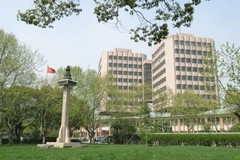
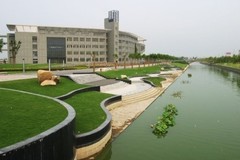
| Short description of the institution |
Tongji University is a key research-intensive university in China and has a history dates back to 1907 when German doctor Erich Paulun established Tongji German Medical School in Shanghai. Currently the university with its two main campuses has grown into a comprehensive and internationally known university with ten major disciplines, i.e. sciences, engineering, medicine, humanities, law, economics, management, philosophy, arts and pedagogy. |
| Official Webpage | Link |
| Profile of partner institution | Focus on Economics, Science and Engineering. |
| Fields of study | all open to exchange; undergraduate and graduate level (but not all subjects offer courses in English, please check before your application) |
| Participating campuses |
2 Main campuses in Shanghai: Siping Campus: Siping Road 1239 and Jiading Campus: Cao'an Highway 4800 |
| Language requirements |
English Proficiency Requirements: Some basic Chinese knowledge is advised, but not compulsory. Recommended Chinese proficiency for participation in Chinese taught courses:
|
| Academic requirements |
|
| Other requirements |
Tongji University cannot accept applications from students with Chinese nationality, which also includes students from Taiwan, Hongkong and Macao. This also applies to students with two nationalities. |
| Courses |
English taught courses: Tongji offers more and more courses in English and German every semester. Not all the colleges and all majors of Tongji University offer courses in English. For more information on courses in advance, please refer to the English course list or contact Ms. SHI Wenbin (Ms.), International Office Tongji University. As usual, this list of courses is for reference only, the actual course schedule will be determined before every semester begins. Chinese taught Courses: https://jwc.tongji.edu.cn/jwcEn/27515/list.htm Choosing courses across the colleges/schools is partly possible, but not guaranteed. Chinese language courses at beginner level and Chinese culture courses offered by the International School are open to all exchange students for free. |
| Semester dates |
1st semester: September – January 2nd semester: February – July |
| Visa Information | Auswärtiges Amt |
| Information for exchange students |
Non-Degree Exchange Programmes Studieren in Shanghai Info Zoom Calls 2024 (angeboten durch das Chinesisch-Deutsche Hochschulkolleg der Tongji U.) |
| Number of students for exchange | approx. 3 / semester |
| Last Update | June 2025 |
Tsinghua University (THU)
| Profile of partner institution | Focus on Management, Economics, Science and Engineering. |
| Fields of study |
All open to exchange; except the Department of Art, Design and Sport, undergraduate and graduate level. Graduate courses of SEM, courses in MBA Program, Foreign Language Department, Schwarzman College and Shen Zhen Graduate School and some special programs are not open to exchange students. Courses in IIIS are very popular and extremely competitive. |
| Participating campuses | All open to exchange. |
| Language requirements |
Applicants interested in visiting courses taught in Chinese need a HSK certificate with band 5, with each subject scored over 60 points. Applicants interested in visiting courses taught in English need a proof of fluent English. [Anm. IStO: This can be one of the following certificates: TOEFL, DAAD Language Certificate or Duolingo English Test (DET).] Mandarin proficiency is required for particular program such as Anthropology, Physical Education. |
| Academic requirements |
|
| Other requirements | Tsinghua cannot accept applications from students with Chinese nationality. |
| Courses |
Most of the courses are taught in Chinese, some departments also offer courses in English: School of Economics and Management, Department of Civil Engineering, Department of Industrial Engineering, School of Life Sciences, School of Journalism. Courses hosted by Academy of Arts and Design and Physical training courses are not open for exchange students. English courses can be found on the THU webpage. Courses available for exchange students. For further information please contact the academic offices of the respective department at THU and their International Students Office. |
| Semester dates |
1st semester: September – January 2nd semester: February – June |
| Visa Information | Auswärtiges Amt |
| Information for exchange stundens | |
| Number of students for exchange | approx. 1 / semester |
City University of Hong Kong (CityU)
| Short description of the institution |
The University was is one of eight government-funded degree ranting tertiary institution. It offers more than 50 bachelor degree programmes and is ranked 48 on the QS World University Rankings. |
||
| Official Webpage | Link | ||
| Fields of study |
All fields are open to exchange, only undergraduate level. |
||
| Language requirements |
TOEFL 79 (Only accepts internet-based scores from a single test date, not MyBest scores). The TOEFL score should be obtained within 3 years before admission. CityU continues to accept the TOEFL Home Edition. For students who would like to take the courses offered by our School of Law, the minimum requirement is TOEFL 100 points. No acceptance of the DAAD Sprachzertifikat. |
||
| Academic requirements |
Students must have completed their first year of study at the home university in order to attend exchange programme at CityU. Students are expected to be in good academic standing at their home institution. For students applying for law courses, they must meet minimum CGPA 3.0 out of 4.3 scale. |
||
| Courses |
Course Information and Class Schedule Inbound Student Exchange Course List: https://banweb.cityu.edu.hk/pls/PROD/hwiecrselis_cityu.P_Main |
||
| Semester dates |
1st semester: September - December 2nd semester: January - May More information |
||
| Visa Information |
Visa Information can be found on: Students are encouraged to apply for student visa to Hong Kong via CityU. CityU may act as local sponsor of exchange students who are accepted for admission and meet Hong Kong visa application requirements. |
||
| Information for exchange students |
CityU Global Engagement Office: Global Engagement Office - City University of Hong Kong CityU Admissions Office: Incoming Exchange Students |
||
| Number of students for exchange | approx. 2 / semester | ||
| Last Update | Nov 2025 |
The Chinese University of Hong Kong (CUHK)
| Short description of the institution |
As the second oldest university in Hong Kong, The Chinese University of Hong Kong (CUHK) is a comprehensive research university with a global vision and mission to combine tradition with modernity, and to bring together China and the West. CUHK’s firmly rooted Chinese culture, multiculturalism and its unique college system set itself apart from other universities in Hong Kong and in the region. Situated in Shatin with its own train station, the University is just minutes away from one of the city’s largest shopping malls, 25 minutes from the central business district on Hong Kong Island and 20 minutes from the Lo Wu border. The campus, which overlooks the scenic Tolo Harbour and is surrounded by greenery, has grown over the years to become the city's largest, greenest, and most sustainably designed campus. Many poets have waxed lyrical about its harmonious tranquillity and scholarly atmosphere. A wide range of academic, residential, sports and leisure facilities provide an all-round campus experience for anyone studying at CUHK. |
| Profile of partner institution |
Focus on Economics, Science and Engineering. CUHK has identified four strategic areas of research:
|
| Fields of study |
Undergraduate level only. Please refer to the information here. Courses/disciplines not open to exchange students Courses offered by the Faculty of Business Administration are extremely competitive among exchange students. Students are strongly advised to have flexible study plans. Architecture is not available to exchange students from KIT. Education and Medicine are not open to exchange students. |
| Participating campuses | The Chinese University of Hong Kong, Shatin, Hong Kong |
| Language requirements |
English TOEFL ibt 80. CUHK continues to accept the TOEFL Home Edition. KIT students with Chinese nationality can also apply. |
| Academic requirements |
Applicants need a minimum GPA (Grade Point Average) of 3.0 on a 4 point scale. Undergraduate students should have completed at least two terms of university studies. |
| Courses |
In general, undergraduate (bachelor) courses offered by the Faculty of Business Administration are very popular among students, therefore applicants are strongly advised to look at other courses and be flexible in their course choices. Exchange students registered as undergraduates at CUHK can take Chinese language courses (Cantonese or Putonghua (Mandarin)) with tuition waiver. For students who are interested in taking courses with topics related to China, the courses offered by the Chinese Studies programme (course code: CHES) might be suitable. |
| Semester dates |
1st semester: September – December (including final examination) 2nd semester: January – May (including final examination) |
| Visa Information | Auswärtiges Amt |
| Information for exchange students | |
| Number of students for exchange |
approx. 1 / semester |
| Last Update | July 2025 |
Indian Institute of Technology Madras (IITM)
| Short description of the institution |
Indian Institute of Technology Madras (IITM) was established in 1959 by the Government of India as an ‘Institute of National Importance.’ The activities of the Institute in various fields of Science and Technology are carried out in 16 academic departments and several advanced interdisciplinary research academic centers. Recognized as an Institution of Eminence (IoE) in 2019, IITM has been ranked No.1 in the ‘Overall’ Category for the fourth consecutive year in India Ranking 2022 released by National Institutional Ranking Framework, Ministry of Education, Govt. of India. The Institute also holds the No.1 position in the ‘Engineering Institutions’ category for the seventh consecutive year. It was also adjudged as the ‘Top innovative Institution’ in the country in Atal Ranking of Institutions on Innovation Achievements (ARIIA) in 2019, 2020 and 2021. The Global Student Exchange Program hosted by IITM attracts students from across the globe. Students are provided with an opportunity to study under eminent faculty alongside IITM students, participate in cutting edge research and partake in culturally immersive activities offered to the student community. |
| Official Webpage | Link |
| Profile of partner institution | Focus on Science and Engineering |
| Fields of study |
All fields are open to exchange |
| Participating campuses | All open to exchange |
| Language requirements |
Good knowledge in English as the lectures are given in English and exams are to be written in English. Students interested in exchange at IITM require one of the following English language certificates in their internal application at KIT International Students Office before the deadline (Sept 10):TOEFL oder DAAD Sprachzertifikat oder Duolingo English Test (DET) |
| Academic requirements |
Applicants need a minimum GPA of 2.5 on a 4.0-point scale Undergraduate applicants should have completed 3-4 semesters and graduate applicants 1 semester prior to participation in the exchange |
| Courses |
General courses can be found in the department sites. Please also check the Fact sheet (below). |
| Semester dates |
1st semester: July - November 2nd semester: January - May |
| Visa Information | Auswärtiges Amt |
| Information for exchange students | |
| Number of students for exchange | approx. 2 / semester |
| Last Update | September 2025 |
University of Haifa
coming soon
| Fields of study |
undergraduate level only, in all Departmens where English courses are available |
| Information for exchange students | Study in Israel: Best Master Programs | UHaifa International |
Technion, Israel Institute of Technology (Technion)

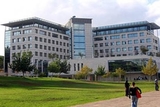
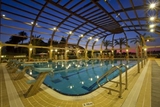
| Short description of the institution |
Technion, consistently ranked among the world’s top 50, is a major source of the innovation and brainpower that drives the Israeli economy. Technion graduates represent 70 percent of the high-tech workforce and established Israel’s industrial infrastructure, reinforced its technological defense capabilities, and pioneered its technology-based enterprises, that has earned the country’s reputation as the world’s “Startup Nation” (with the highest concentration of high-tech companies anywhere outside the Silicon Valley). |
| Official Webpage | Link |
| Profile of partner institution | Focus is on Civil Engineering, Mechanical Engineering, and Entrepreneurship |
| Fields of study |
Mainly Engineering and Science, Business courses are held in Hebrew. There are substantially more courses available in English at the graduate level but every faculty offers courses in English at the undergraduate level, mainly in Mechanical Engineering. |
| Participating campuses | Main campus, Haifa |
| Language requirements |
Students interested in exchange at Technion require one of the following English language certificates in their internal application at KIT International Students Office before the deadline (Sept 10): TOEFL oder DAAD Sprachzertifikat oder Duolingo English Test (DET) Required English Level: TOEFL minimum score 80 (Technion continues to accept the TOEFL Home Edition) or DAAD Language Certificate minimum B2 or Equivalent Duolingo English Test (DET) Hebrew is a great plus |
| Academic requirements |
Students interested in exchange at Technion require one academic recommendation letter included in their internal application at KIT International Students Office before the deadline (Sept 10). |
| Courses |
Courses at Technion are taught in Hebrew with courses on undergraduate level offered in English in Civil and Mechanical Engineering, Architecture and Town Planning and Humanities. The language of graduate level courses (including other faculties as well) may be changed to English with the approval of the lecturer. |
| Semester dates |
1st semester: October – February 2nd semester: March - July |
| Visa Information | Auswärtiges Amt |
| Information for exchange students | |
| Number of students for exchange |
approx. 3 / semester Solange eine aktive Reisewarnung des Auswärtigen Amts besteht, können wir einen Aufenthalt nicht unterstützen. |
| Last Update | July 2024 |
Kyoto University
| Short description of the institution | Comprehensive university for all Humanities, Social and Natural Sciences. |
| Official Webpage | Link |
| Profile of partner institution | Comprehensive university for all Humanities/Social and Natural Sciences |
| Fields of study | All fields are open except Medical Field. Undergraduates and Graduates are welcome. |
| Language requirements |
|
| Academic requirements |
|
| Courses |
Kyoto University offers two incoming exchange programs: 1. Kyoto University International Education Program (KUINEP) This program enables undergraduates from partner universities to study in English.
2. Kyoto University General Exchange (GE) Program (enrollment status: GEA or GESR) In this program, students either take courses, mostly from the Kyoto University Faculties or Graduate Schools to which they are affiliated (as "General Exchange Special Auditors", or GEAs), or conduct research under academic supervisors without attending classroom lectures (as "General Exchange Special Research Students", or GESRs). Undergraduates have to take 7 courses per semester. Graduate students are asked to take 4 courses per semester. Graduate students have also the possibility to stay without taking any courses lectured in a classroom and are able to do research. (Special Research Student Program). Upon approval by the home university, students interested in the Special Research Student Program shall directly contact the provisional academic advisor under whom they wish to conduct their research and request the issuance of a letter of provisional acceptance. |
| Semester dates |
1st semester: October – February 2nd semester: April – August |
| Visa Information | Auswärtiges Amt |
| Information for exchange students | |
| Number of students for exchange |
approx. 2 / semester |
| Last Update | July 2025 |
Nara Institute of Science and Technology (NAIST)
| Profile of partner institution | Nara Institute of Science and Technology (NAIST) is a Japanese national university founded in 1991, located in Kansai Science City, a border region between Nara, Osaka, and Kyoto. The university's objectives are to conduct cutting-edge research in frontier areas and to train students to become tomorrow's leaders in science and technology. |
| Fields of study |
Strong focus on information science, biological science and materials science. Only Graduate level student |
| Participating campuses | All open to exchange |
| Language requirements |
|
| Academic requirements |
|
| Courses |
NAIST's exchange program is for graduate school students who wish to receive research guidance at a laboratory in NAIST. Acceptance as Special Research Students. Please contact a professor whose lab you are interested in joining before submission of pre-application form. Special research students are not eligible to take any classes at NAIST. If they would like to take classes, they must apply for Special Auditing Student. However, even if they are approved as a Special Auditing Student, they cannot take introduction subjects and general subjects including Japanese Culture and Japanese Language. A volunteer group provides Japanese Language classes, and they can take the classes without the above student status. Education and Research: Education and Research|NARA Institute of Science and Technology (naist.jp) |
| Semester dates |
1st semester: October - February 2nd semester: April –August |
| Visa Information | Auswärtiges Amt |
| Information for exchange students |
Guidelines for Special Research Student Applications |
| Number of students for exchange | approx. 2 / semester |
| Last Update | June 2025 |
The University of Osaka (Osaka University)
| Offical Webpage |
Effective April 2025, our institution will change its official English name to "The University of Osaka". |
| Fields of study |
Letters, Law, Foreign Studies, Economics, Human Sciences, Science, Medicine, Allied Health Sciences, Dentistry, Pharmaceutical Sciences, Engineering, Engineering Science, Language and Culture, International Public Policy(OSIPP), Information Science and Technology, Frontier Biosciences Institutes of Microbial Diseases, Scientific and Industrial Research, Protein Research, Social and Economic Research, Joining and Welding Research
|
| Language requirements |
|
| Academic requirements |
|
| Further requirements |
|
| Courses | Osaka University-wide Syllabus |
| Semester dates |
1st semester: September - February 2nd semester: April - August |
| Visa Information | Auswärtiges Amt |
| Information for exchange students | |
| Number of students for exchange | approx. 5 semester places / year |
| Last Update | Aug 2025 |
The University of Tokyo - School of Engineering
| Official Webpage | |
| Profile of partner institution | School of Engineering |
| Fields of study |
School of Engineering (all engineering departments are open to exchange, except for Department of Advanced Interdisciplinary Studies and Nuclear Professional School), undergraduate and graduate level |
| Participating campuses | All open to exchange; Hongo campus and Komaba campus in Tokyo and Kashiwa campus in Chiba |
| Language requirements |
Undergraduate Level:
Graduate level:
|
| Academic requirements |
|
| Courses |
Most of the courses are taught in Japanese. Especially Graduate courses are also taught in English. Course restrictions apply (ref). 10 hrs./week of class or lab work required or 6 courses equiv. |
| Semester dates |
1st semester: September - March 2nd semester: April - August |
| Visa information | |
| Information for exchange students | |
| Number of students for exchange |
[Hinweis IStO, Nov 2025: Derzeit laufen Verhandlungen zur Verlängerung der Kooperation. Für Aufenthalte im akadem. Jahr 2026/27 stehen vsl. keine Plätze zur Verfügung.] |
| Last Update | July 2025 |
Tohoku University
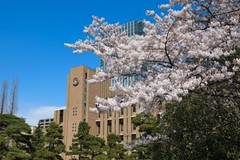
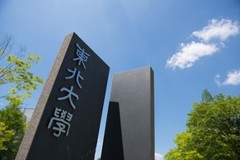
| Short description of the institution | Tohoku University has been committed to its "Research First" principle and "Open Door"policy for over a century, earning international recognition for both educational and research excellence. The university continues to find ways to improve lives around the world, by grooming the next generation of leaders, and arming them with the most innovative technology that the world’s best research teams can produce. |
| Official Webpage | |
| Profile of partner institution | Comprehensive Research University, famous for the strength in the field of Science and Engineering. (More information) |
| Fields of study |
All open to exchange, undergraduate and graduate level Tohoku University Global Learning Center has various student exchange programs open to undergraduate and postgraduate students. For undergraduate students:
For postgraduate students:
More information on the Programs can be found here. |
| Participating campuses | All open to exchange (More information) |
| Language requirements |
Applicants seeking admission to English-Based exchange program (JYPE/COLABS/IPLA) need
Knowledge of Japanese is recommended. Applicants for the DEEP Program need a JLPT N1 certificate. Check language requirements here: https://www.insc.tohoku.ac.jp/english/exchange/english-requirement-for-exchange-program/ |
| Academic requirements |
|
| Courses |
Course Syllabus: Please check "Course Information / Registration" from "Academic" : https://www.insc.tohoku.ac.jp/english/exchange/exchange_faq/ Most of the courses in the JYPE, COLABS and IPLA programs are taught in English. Most of the courses in the DEEP program for undergraduate are taught in Japanese. The number of COLABS applicants has been increasing and it is becoming quite a competitive program. Course Restrictions: |
| Semester dates |
1st semester: October - March 2nd semester: April - September |
| Visa Information | |
| Information for exchange students |
Student Exchange Information: https://www.insc.tohoku.ac.jp/english/exchange/ After successful application for exchange program at KIT and nomination by KIT to Tohoku University, students interested in COLABS program are therefore required:
We strongly recommend that applicants apply as early as possible to secure a space in a laboratory of their choice. |
| Number of students for exchange |
Approx. 3 / semester |
| Last Update | July 2025 |
École de technologie supérieure (ÉTS)
| Short description of the institution | Co-operative education, applied research, collaboration, innovation, and entrepreneurship are the pillars of the ÉTS mission. Through the unique experiences it offers, the School fosters and promotes Québec know-how both at home and abroad. By tirelessly working for the scientific advancement of society, ÉTS is resolutely engaged in improving the lives of future generations. |
| Official Webpage | https://www.etsmtl.ca/en |
| Fields of study |
All fields are open to exchange but some courses are not available to exchange students. Cours non accessibles aux étudiants en échange: Cours non accessibles aux étudiants en échange - ÉTS Montréal |
| Language requirements |
For coursework: minimum B2 level of French proficiency, because all courses at ETS are taught in French. OR for research internship only: Have an adequate level of language proficiency in English or French |
| Academic requirements |
Applicants must be enrolled either in a Master’s or an undergraduate program leading to an engineering degree. Applicants are required to have completed one year of engineering (60 ECTS credits or the equivalent), at the time of starting your exchange at ÉTS (Level M1 or M2) One academic recommendation letter included in the internal application at KIT International Students Office before the deadline (Sept 10) |
| Courses |
Recherche de cours: https://www.etsmtl.ca/programmes-formations/programmes/cours Horaire et planification des cours: Horaire et planification des cours - ÉTS Montréal Cours non accessibles aux étudiants en échange: Cours non accessibles aux étudiants en échange - ÉTS Montréal
Vos étudiants du graduate level peuvent s’inscrire à 2 cours de niveau maîtrise et compléter avec 2 cours de dernière année de cycle ingénieur (série 600 ou 700). Ils pourraient également s’inscrire à 2 cours de maîtrise (6 crédits) et effectuer un stage de recherche en labo à temps partiel (6 crédits). À ce moment-là, ils devront toutefois obtenir un permis de travail stage coop international pour la durée de leur séjour : https://www.canada.ca/fr/immigration-refugies-citoyennete/services/travailler-canada/eic/admisibilite.html
Research lab internship at ÉTS (possible in English): https://www.etsmtl.ca/en/student-experience/study-in-canada/mobility-programs/research-internship |
| Semester dates |
1st semester: September – December (Autumn Semester) 2nd semester: January – April (Winter Semester) |
| Visa Information | Kanada: Reise- und Sicherheitshinweise - Auswärtiges Amt (auswaertiges-amt.de) |
| Information for exchange students | https://www.etsmtl.ca/en/student-experience/study-in-canada/mobility-programs/student-exchange-program |
| Number of students for exchange |
approx. 3 / semester ÉTS acceptera des étudiants pour 2 sessions (8 mois) ou une session. This is a new partnership. |
| Last Update | July 2025 |
Polytechnique Montréal
| Short description of the institution |
Polytechnique Montréal at Université de Montréal is the 1st ranked Francophone Campus in North America, and is one of Canada’s leading engineering teaching and applied research schools. Highly ranked for the number of Canada Research Chairs in Engineering and the scope of its research activities, Polytechnique obtains the highest research funding among engineering schools in the country. Founded in 1873, Polytechnique Montréal has the largest engineering student body in Quebec, international students accounting for more than one quarter. The university has active collaboration agreements with more than 190 institutions in 52 countries. Thirty percent of undergraduates are women. The world needs creative and innovative engineers more than ever. Polytechnique is producing them, in Montreal – ranked among the top student cities in the world since 2018! |
| Official Webpage | |
| Fields of study |
Polytechnique offers courses and programs in the following engineering specialties: Aerospace*, Computer, Mechanical, Biomedical, Electrical, Mining, Chemical, Geological, Physics, Civil, Industrial, Software * Courses offered in aerospace engineering are highly competitive and many restrictions apply. |
| Language requirements |
|
| Academic requirements |
|
| Courses |
|
| Semester dates |
1st semester: Aug - Dec (fall term) 2nd semester: Jan - May (winter term) |
| Visa Information | Kanada: Reise- und Sicherheitshinweise - Auswärtiges Amt (auswaertiges-amt.de) |
| Information for exchange students | |
| Number of students for exchange |
approx. 5 / semester PolyMTl accepts students for one or two terms (8 months). This is a new partnership. The first exchange can take place during 2026/27. |
| Last Update | Nov 2024 |
University of Waterloo
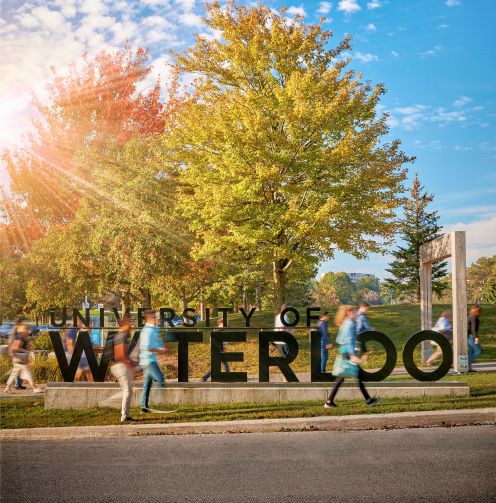
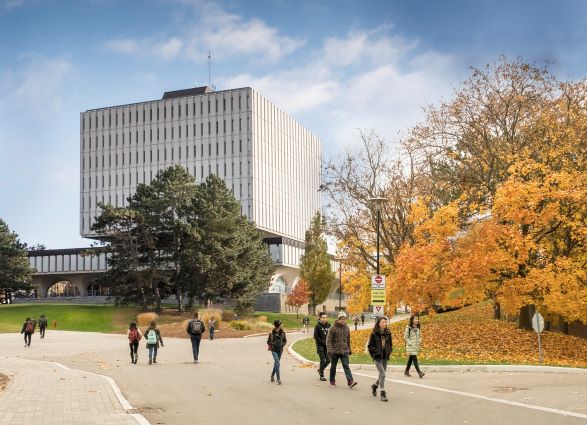
| Short description of the institution |
Beyond is where we begin Waterloo goes beyond the classroom, to a place where experience is the teacher. Beyond problems to solutions that address social, technical and economic needs. Beyond the laboratory, to the research that propels industries, organizations and society. Waterloo is at the forefront of innovation and is home to transformational research and inspired learning. Located in the heart of Canada's technology hub, we are growing a network of global partnerships that will shape the future by working beyond disciplines and building bridges with industry, institutions and communities. Our incredible people and partners take us beyond the lives we're living today, to find solutions to the global challenges that lie ahead. Creating change that goes beyond the status quo and is felt around the world. Waterloo goes beyond—to challenge, connect and propel our world. |
| Official Webpage | Link |
| Profile of partner institution | Focus on Mechanical Engineering and Chemical Engineering |
| Fields of study |
UPDATE Jul 2025: Undergraduate level Undergraduate students are welcome to enroll in classes across our 6 faculties (with sufficient background. Undergraduate exchange students can only enrol in a maximum of two Com puter Science courses per term. This includes courses cross-listed with Computer Science.Space is limited in our Architecture programs at all levels. Please check our Course restrictions - undergraduate exchange students before applying, to make sure that your study plans fit UWaterloo's offer.
Graduate level If graduate level students are interested in Waterloo, then they need to ensure they are applying to a department in which they have solid background knowledge. The Department of Computer Science is one of the most competitive programs at Waterloo. Space is limited in our Architecture programs at all levels. Demand for graduate level departments seem to fluctuate year over year which could impact their capacity year over year. A full list of our Graduate programs can be found here: Come to Waterloo - graduate applications | Student Success Office | University of Waterloo (uwaterloo.ca) |
| Participating campuses | Exchange students are invited to study at the main campus in Waterloo and the campus in Cambridge (School of Architecture). UWaterloo’s other campuses in Stratford and Kitchener are not open for exchange students. |
| Language requirements |
ACHTUNG NEUERUNG Undergraduate level:
|
| Academic requirements |
|
| Courses |
Undergraduate Course selection |
| Semester dates |
1st semester: September - December (Fall Semester) 2nd semester: January - April (Winter Semester) 3rd semester: May – August (Spring Semester) Waterloo has three full terms throughout the academic year, offering full academic programming during our Spring term (May to mid-August). Many courses are offered in spring and all services, including Orientation, on-campus housing, and student clubs are available. Students are eligible to come for either one or two terms (but not for all three terms). |
| Visa Information | Auswärtiges Amt |
| Information for exchange students |
Come to Waterloo (Student Success Office) Experience the University of Waterloo (Video) Waterloo is committed to ensuring all students can access and meaningfully participate in their education by removing barriers and building capacity for personal success. AccessAbility Services offers academic accommodations for students with disabilities and disabling conditions (e.g., injuries, medical conditions, or impacts of trauma such as from violence, discrimination, or oppression). If you believe you may require academic accommodations during your studies at Waterloo, learn about the accommodation services and supports available and how to apply for them. |
| Number of students for exchange |
approx. 4 / semester Students are eligible to come for either one or two terms (but not for all three terms). |
| Last Update | July 2025 |
Instituto Tecnologico y de Estudios Superiores de Monterrey (ITESM)
| Official Webpage | Home | Tecnológico de Monterrey |
| Short description of the institution | At Tecnológico de Monterrey you will develop your professional and human potential through the high academic level, resources and programs of excellence we offer. |
| Profile of partner institution | Professional and human potential developed through the high academic level, resources and programs of excellence |
| Fields of study |
Engineering, Biotechnology, Information Technology, Economics, Humanities, Social Sciences, Architecture, Arts and Design, Agriculture and Food Technology, Health Sciences, and Political Sciences. Business courses are limited. Business students should mix courses from Business and other areas to complete the academic workload. Undergraduate level only. Generally, undergraduate programs at Tecnológico de Monterrey are 9 semesters long. Students enrolled in a Master level program at KIT will normally be allowed to enroll in undergraduate level courses at Tecnológico de Monterrey. Participating campuses:
|
| Language requirements |
In general, the language of instruction of Tecnológico de Monterrey is Spanish and English. Students who want to register courses taught in Spanish must have an Advanced level of Spanish (B1 MCER / CEFR). Mandatory placement test takes place a few weeks before the semester starts. Students who want to register courses taught in English must have an Advanced level of English (B1 or equivalent). Anm. IStO: If they wish to enroll in courses taught in English, interested students require one of the following English language certificates in their internal application at KIT International Students Office before the deadline (Sept 10):TOEFL oder DAAD Sprachzertifikat |
| Academic requirements |
|
| Courses |
There is currently little variety of courses in English per discipline, so students should have the flexibility to take courses from other disciplines in order to complete their academic load. Bachelor courses of the last semesters are restricted, we recommend that the students come to Tec considering different courses to take. KIT students can take and mix courses from all academic fields except Health. We will receive KIT students only for TEC21 Model. Our academic load is 18 credits equivalent to 30 ECTS |
| Semester dates |
1st semester (fall semester): August - December 2nd semester (spring semester): February - June |
| Visa Information | Auswärtiges Amt |
| Information for exchange students |
Tec de Monterrey - Student Factsheet 26-27 Tec de Monterrey - Study in Mexico |
| Number of students for exchange |
approx. 4 / semester Diese Kooperation ist noch relativ frisch - Start des ersten Austauschs im Jahr 2024/25. Mit dem ersten Erfahrungsbericht ist im Sommer 2025 zu rechnen. |
| Last Update | Sept 2025 |
Universidad Nacional Autónoma de México (UNAM)
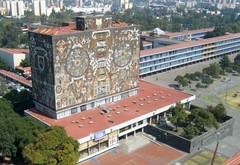
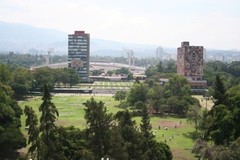
| Official Webpage | Universidad Nacional Autónoma de México (UNAM) |
| Profile of partner institution | Focus on Physics, Mathematics and Engineering Sciences; Biological, Chemical and Health Sciences; Social Sciences and Humanities and Arts (More Information) |
| Fields of study |
All fields of study, undergraduate and graduate level. There are some restrictions on limit of space and special requirements of some schools, please carefully check these! |
| Language requirements |
For undergraduate program
For postgraduate programs:
|
| Academic requirements |
For undergraduate level, students must meet at the time of application:
For posgrado level:
|
| Courses |
Licenciatura/Undergraduate:
Postgraduate:
|
| Semester dates |
1st semester: August - December 2nd semester: January - June |
| Visa Information | Auswärtiges Amt |
| Information for exchange students |
Pregrado/Licenciatura:
Posgrado: |
| Number of students for exchange |
Undergraduate (Licenciatura): approx. 4 / semester Posgrado: approx. 4 / semester |
| Last Update | July 2025 |
Korea Advanced Institute of Science and Technology (KAIST)
|
|
|
| Short description of the institution | KAIST is the first and top science and technology university in Korea. KAIST has been the gateway to advanced science and technology, innovation, and entrepreneurship, and our graduates have been key players behind Korea’ innovations. |
| Official webpage | |
| Profile of partner institution |
Focus on Science, Engineering and Economics |
| Fields of study |
All fields are available except for those offered by the College of Business (Seoul Campus) and the Graduate School of Medical Science and Engineering. Civil and Environmental Engineering, Aerospace Engineering, Materials Science & Engineering, Mechanical Engineering, Computing, Electrical Engineering, Mathematical Sciences, Physics, Bio and Brain Engineering, Chemical and Biomolecular Engineering, School of Business and Technology Management, Chemistry, Industrial Design, Industrial & Systems Engineering |
| Participating campuses |
The main campus, which is open to exchange students, is located in Daejeon and covers most of the courses and departments at KAIST. KAIST Seoul Campus (College of Business, Graduate School of Medical Science and Engineering / Department of Seoul campus) is not open for exchange students. |
| Language requirements |
Students interested in exchange arequire one of the following English language certificates in their internal application at KIT International Students Office before the deadline (Sept 10): TOEFL oder DAAD Sprachzertifikat oder Duolingo English Test (DET) Applicants need a TOEFL iBT 80 or equivalent DAAD B2 language certificate or equivalent DET certificate. (More information) Test to be taken within 2 years of nomination date (Nomination deadlines: April 1st for Fall entry, Oct 1st for spring entry). KAIST continues to accept the TOEFL Home Edition. |
| Academic requirements |
GPA (Grade Point Average) of 3.0 or better (on a 4.3 point scale) or equivalent Students need to have finished minimum 1 year of full-time study for Undergraduate students and minimum 1 semester of full-time study for Graduate Students before the start of their stay at KAIST |
| Courses |
Courses are taught in Korean and English. If there is at least one foreigner in the courses, the professor may teach in English. For course information, please refer to KAIST IO |
| Semester dates |
1st semester: September - December (Fall Semester) 2nd semester: March – June (Spring Semester) |
| Visa Information | |
| Information for exchange students | |
| Number of students for exchange |
approx. 2 / semester |
| Last Update | July 2025 |
Seoul National University (SNU)
| Short description of the institution | Founded in 1946 by the merger of ten higher education institutions, Seoul National University enjoys a prestige unlike any other Korean university. Sixteen colleges of the university offer 83 undergraduate degree programs, while for master’s and doctoral programs there is a graduate school with 99 programs across five fields of studies. |
| Official webpage |
Link (English) |
| Profile of partner institution | |
| Fields of study |
Applicants from SNU’s university-wide partners can in principle apply for any academic program. Please, however, note that applicants must read the restrictions thoroughly and may be required to change their choice if SNU finds it difficult to accommodate it. The disciplines of Medicine, Pharmacy, Dentistry, Nursing, Music, Fine Arts, and MBA have restrictions when it comes to accepting exchange students. Please note:
|
| Participating campuses | Exchange students are invited to study at Gwanak (main) campus. |
| Language requirements |
Students interested in exchange require one of the following English language certificates in their internal application at KIT International Students Office before the deadline (Sept 10): TOEFL oder DAAD Sprachzertifikat oder Duolingo English Test (DET) TOEFL ibt 88 or above (SNU continues to accept the TOEFL Home Edition) or equivalent level on DAAD certificate or equivalent level on DET certificate |
| Academic requirements |
Applicants need a minimum GPA (Grade Point Average) of:
Applicants for Undergraduate level must fulfill the following requirement: Have completed at least two years of university work at KIT prior to participation in the exchange Applicants for Graduate level must fulfill the following requirement: If they wish to start their study at SNU in fall semester 2024, they must be enrolled in at least second semester of their home university Master Program in March 2024 (and have a full transcript of at least one Master semester before application deadline at SNU). If they wish to start their study at SNU in spring semester 2025, they must be enrolled in at least second semester of their home university Master Program in September 2024 (and have a full transcript of at least one Master semester before application deadline at SNU). We cannot thus accept graduate students who are enrolled in the first semester of the Master’s program at their SNU application stage (March 2024 for fall semester 2024, September 2024 for spring semester 2025). |
| Courses | All course information (as well as information on restrictions of courses) can be found here. |
| Semester dates |
1st semester: September – December 2nd semester: March – June |
| Visa Information |
Please note that each student should directly contact the Korean embassy for visa application. Students can get general info on visa at this website Auswärtiges Amt: Visa information |
| Information for exchange students | |
| Number of students for exchange |
approx. 3 / semester |
| Last Update | July 2025 |
St. Petersburg National Research University of Information Technologies (ITMO)
|
|
|
| Short description of the institution | One of Russia’s leading and most innovative higher education institutions, ITMO University offers international exchange students a wide range of educational tracks in a variety of cutting-edge scientific fields such as economics and innovations, IT and programming, control systems and robotics, as well as environmental studies, all taught by leading researchers and industry specialists. Gain a new international experience, expand your knowledge and skills, and explore St. Petersburg and the rest of Russia during an exciting and action-packed exchange semester at ITMO! Show me more |
| Official webpage | |
| Profile of partner institution |
IT, Information Security & Data Science |
| Fields of study |
All fields of study, undergraduate and graduate level. |
| Language requirements | • English DAAD Language Certificate B2 level or TOEFL equivalent • Russian B1 level (only if the students would like to attend courses taught in Russian) |
| Academic requirements | To have good academic standing (average grades not lower than “Good” and “Excellent”) |
| Other requirements | two completed years of university work prior to participation in the exchange |
| Courses | The tentative list of availbale courses is available here. |
| Semester dates |
1st semester: 1. September 2020 – 31. January 2021 2nd semester:1. February 2021 – 30. June 2021 |
| Visa Information | |
| Information for exchange students | |
| Number of students for exchange |
approx. 3 / semester Solange eine aktive Reisewarnung des Auswärtigen Amts besteht, können wir einen Aufenthalt nicht unterstützen. |
| Last Update | May 2021 |
Tomsk Polytechnic University (TPU)
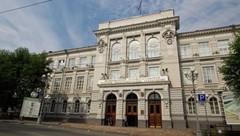
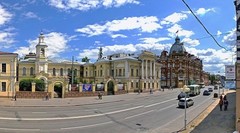
| Short description of the institution |
TPU is a national research university which places special emphasis on advanced engineering education, creation of resource-efficient technologies, internationalization, and integration of research and academic activities. |
| Offical Webpage | Link |
| Profile of partner institution | Focus on Science, Engineering and Economics |
| Fields of study | All fields are open to exchange except Nuclear Engineering. |
| Participating campuses | All open to exchange |
| Language requirements | Applicants need a proof of fluent English language (minimum B1, DAAD language certificate or TOEFL equivalent) and a sufficient knowledge of Russian is recommended. |
| Courses | Courses are taught in Russian and English. (Course Catalogue) |
| Semester dates |
1st semester: September – February 2nd semester: February – June |
| Visa Information | Auswärtiges Amt |
| Information for exchange students | |
| Number of students for exchange |
approx. 3 / semester. Solange eine aktive Reisewarnung des Auswärtigen Amts besteht, können wir einen Aufenthalt nicht unterstützen. |
| Last Update | May 2021 |
National University of Singapore (NUS)
Available courses for exchange students are found on NUS’ main campus at Kent Ridge
| Short description of the institution | The National University of Singapore aspires to be a vital community of academics, researchers, staff, students and alumni working together in a spirit of innovation and enterprise for a better world. Our singular focus on talent will be the cornerstone of a truly great university that is dedicated to quality education, influential research and visionary enterprise, in service of country and society. |
| Official Webpage | Link |
| Profile of partner institution | Focus on Science, Engineering and Informatics |
| Fields of study |
Suitable for students in their second and third year of undergraduate studies. Students may read courses from the College of Design and Engineering, Faculty of Arts & Social Sciences and School of Computing. Please note that they are subjected to availability and pre-requisites. Architecture, Computer Science, Civil Engineering and Economics courses are extremely oversubscribed. Students majoring in Architecture, Computer Science, Civil Engineering and Economics will be given priority of allocation. Students with other declared majors are advised against choosing from these courses.
Students should be choosing Levels 1000 to 3000 modules (available to Undergraduate applicants only). Business and Law courses are not available for KIT exchange students.
Students are highly encouraged to be flexible in their module selection at NUS and to have back-ups.
This program is not suitable for students who wish to study Computing, Ecomomics or Architecture at NUS. |
| Language requirements |
Students interested in exchange at NUS require one of the following English language certificates in their internal application at KIT International Students Office before the deadline (Sept 10):TOEFL oder DAAD Sprachzertifikat oder Duolingo English Test (DET) English is the main language of instruction in NUS. NUS continues to accept the TOEFL Home Edition. |
| Academic requirements |
Additionally, each module entail it's own pre-requisites. Students are advised to find out more about each module to see if they fulfil the pre-requisites before applying. |
| Courses |
Exchange students are classified as Non-Graduating Exchange Students (NGE). Please refer to course related matters such as Course Restrictions, Offerings (ie NG Courses, Brief Course Descriptions), Audit Status, Course Summary and Curriculum Matters, Changes to Enrolled Courses and the Workload Requirements .
Level 2000 and 3000 Courses: These courses are equivalent to second or third year undergraduate courses, and are normally open for exchange students.
Level 4000 Courses: Courses at this level have very limited supply and are usually not available for exchange students.
Level 5000 and above Courses: These are graduate courses and are not offered to exchange students. |
| Semester dates |
1st semester: August - December 2nd semester: January – May |
| Visa Information |
Application Guide: https://www.nus.edu.sg/gro/global-programmes/student-exchange/incoming-exchangers |
| Information for exchange students |
Info Sheet https://nus.edu.sg/gro/docs/default-source/prog/sep/exchange∂nus.pdf Videos:
On-campus accommodation is severely limited and it is recommended to search for off-campus accommodation while awaiting the results of on-campus options. |
| Number of students for exchange |
approx. 1 / semester |
| Last Update | June 2025 |
National Taiwan University (NTU)
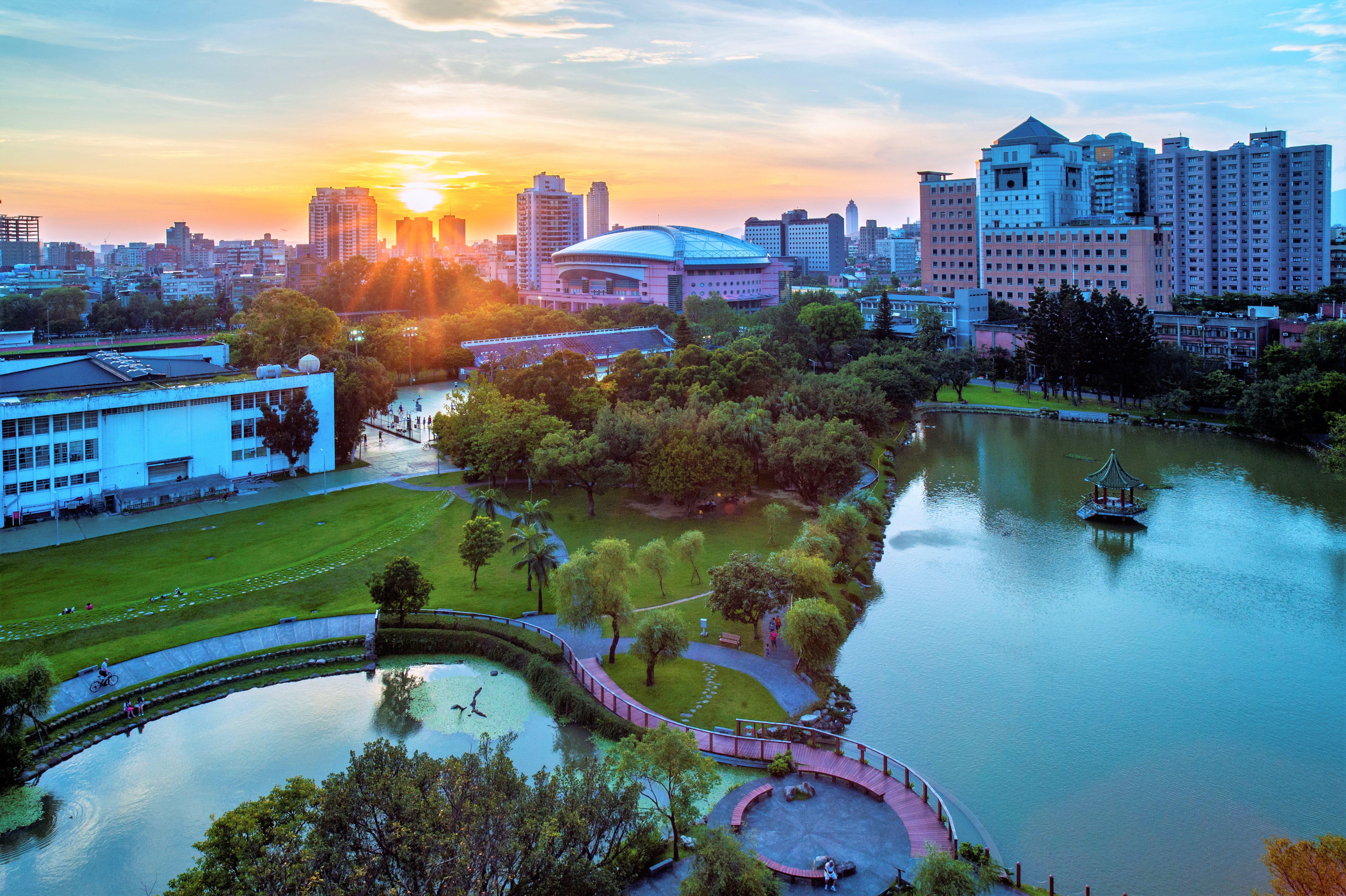 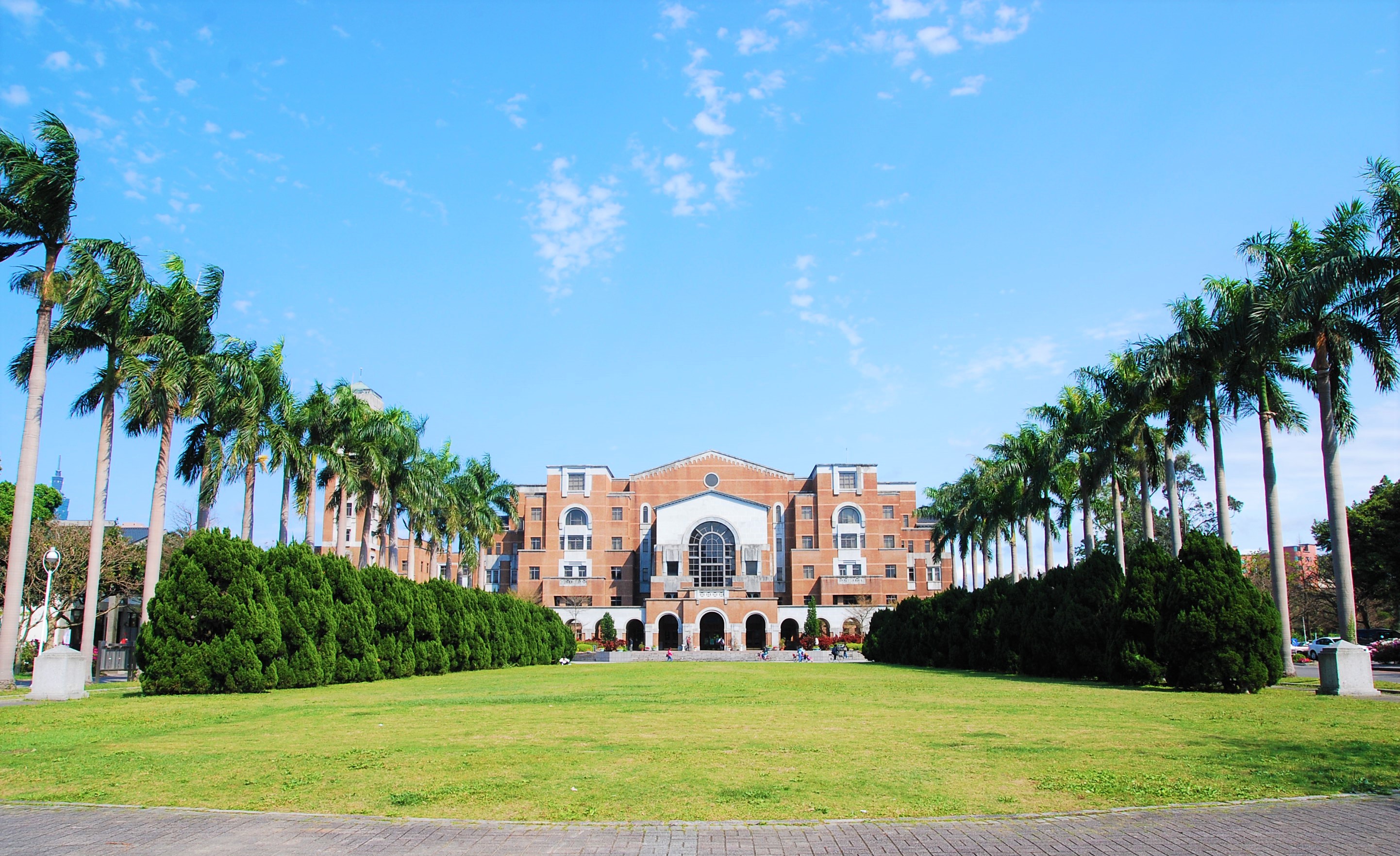 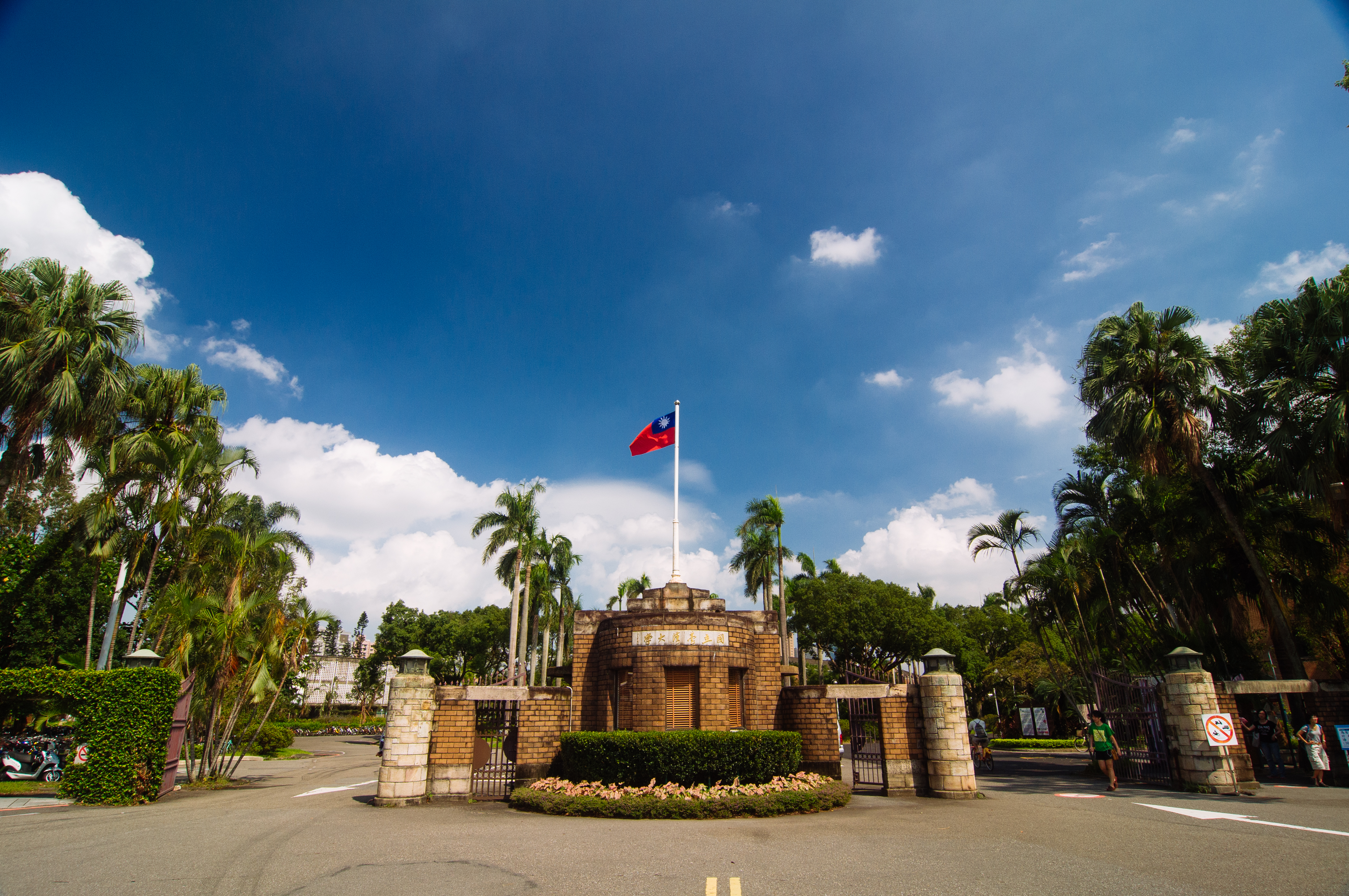 |
||
| Short description of the institution |
National Taiwan University is the prestigious flagship university of Taiwan. NTU has 11 colleges, 54 departments,107 graduate institutes, and eight master's and PhD programs, which range from the natural sciences to the humanities, society, and the arts. It offers more than 7,800 courses each semester, placing it tops in the nation in terms of both breadth of academic fields and volume of programs. Students who study at NTU become a part of the nation’s richest center of learning and are given the opportunity to receive a diverse, superlative education. |
|
| Official Webpage | Link | |
| Profile of partner institution | Focus on Liberal Arts, Science, Social Sciences, Medicine, Engineering, Bio-Resources & Agriculture, Management, Public Health, Electrical Engineering & Computer Science, Law and Life Science. | |
| Fields of study |
The Department of Economics is under the College of Social Sciences at NTU. Courses related to economics can also be found in other departments (e.g. College of Management).
More info, also on restricted courses: Office of International Affairs, National Taiwan University | Overview - Office of International Affairs, National Taiwan University |
|
| Participating campuses | NTU main campus locates in the middle of Taipei city. Most exchange students take courses here. Taipei is rich in leisure and recreation, cultural arts, heritage sites, and other attractions, it enjoys a superb geographical position and traffic environment. Upmarket shopping malls, multistory electronics centers and modern-traditional fusion dining are all connected by an MRT system regularly voted the best in the world. Taipei is convenience defined, with more 7-Elevens per capita than any place on Earth. | |
| Language |
Students interested in exchange require one of the following English language certificates in their internal application at KIT International Students Office before the deadline (Sept 10):TOEFL oder DAAD Sprachzertifikat oder Duolingo English Test (DET) Courses at NTU are mainly taught in English or Chinese. Students should meet either English or Chinese language proficiency at:
Latest Update:
Please visit https://oia.ntu.edu.tw/en/internationalstudents/exchange/overview |
|
| Academic requirements |
Please visit https://oia.ntu.edu.tw/en/internationalstudents/exchange/overview |
|
| Other requirements |
|
|
| Courses |
Online course information can be found here: https://nol.ntu.edu.tw/nol/guest/index.php The course selection period is typically divided into three stages, and it is recommended that students do not skip the first stage in particular, in order to increase their chances of enrolling in courses they want. |
|
| Semester dates |
1st semester: August – December 2nd semester: February – June |
|
| Visa Information | Auswärtiges Amt | |
| Information for exchange students |
https://oia.ntu.edu.tw/en/internationalstudents/exchange/overview |
|
| Number of students for exchange | approx. 5 / semester | |
| Last Update | July 2025 | |
National Tsing Hua University (NTHU)
|
Short description of the institution |
NTHU is generally considered to be one of the best universities in Taiwan. |
|
Official Webpage
|
|
| Profile of partner institution | Focus on Sciences, Engineering, Electrical Engineering and Computer Science, Technology Management Education & Arts |
| Fields of study | All fields are open to exchange except EMBA program. |
| Participating campuses | Located in HsinChu City |
| Language requirements |
Students interested in exchange require one of the following English language certificates in their internal application at KIT International Students Office before the deadline (Sept 10): TOEFL oder DAAD Sprachzertifikat oder Duolingo English Test (DET)
B2 level of English proficiency (or TOEFL iBT79, TOEFL Home Edition is accepted or equivalent DET test result), some department may ask for Chinese proficiency or other requirements.
Update July 2025: Please note that some departments at NTHU may require specific English test scores, such as TOEFL. IMBA, College of Semiconductor Research,Taipei School of Economics and Political Science and Institute of Photonics Technologies may require TOEFL. However the requirements may be updated each semester. [Anm. IStO: Wir akzeptieren zur initialen Bewerbung am KIT die oben genannten Sprachnachweise TOEFL, DAAD oder DET. Falls notwendig, kann der TOEFL nach der Platzierungszusage ggf. noch abgelegt werden.] |
| Academic requirements |
|
| Other requirements | Students with Chinese nationality are not eligible for the exchange program. |
| Courses | Course information |
| Semester dates |
1st semester: September – January 2nd semester: February – June |
| Information for exchange students | |
| Number of students for exchange | approx. 4 / semester |
| Last Update | June 2025 |
Purdue University (PU)
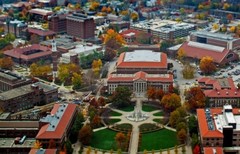
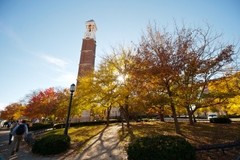
| Short description of the institution | Purdue University is committed to student success, changing how classes are taught with greater focus on faculty-student interaction and creative uses of technology. |
| Official Webpage | Link |
| Profile of partner institution | Focus on Humanities, Science, Engineering and Economics, not all fields are open for exchange |
| Fields of study |
This exchange program is open to students in most fields. There are some fields that are not open to exchange students: Aviation, Education, Nursing, Pharmacy, Veterinary Medicine. Suitable for Undergraduate Students or Students at the beginning of their Graduate studies. (All students are welcome to participate on the exchange program as Undergraduate students. Students admitted to Purdue as undergraduates may take courses numbered from 10000 to 49999. Courses numbered 50000 to 59999 require special permission from the department; those numbered 60000 and above are open only to exchange students who have been admitted as graduate students. https://www.purdue.edu/gpp/sa/incoming/courseregistration.html)
Advanced Graduate students hoping to enroll as a Graduate Student must have their application reviewed by The Graduate School. The Graduate School admissions process takes much longer than the Undergraduate admissions process. The Study Abroad Office has no input or control over the admissions decision or processing timeline for students hoping to enroll as Graduate Students. Additionally, they are not eligible to participate in the university orientation events and will instead only have access to graduate student onboarding activities. Similarly, graduate students do not have access to Purdue University Residences accommodation and are fully responsible for finding independent housing for their stay. The School of Management doesn't accept graduate students.
Students with no chance to apply for the GEARE program (Mechanical Engineering) are preferred for the exchange program. |
| Participating campuses | West Lafayette |
| Language requirements |
TOEFL Total score of 80 or higher (no section score below 20). TOEFL scores must be no more than two years old at the time of admission. Purdue U. continues to accept the TOEFL Home Edition. |
| Academic requirements |
|
| Courses | |
| Semester dates |
1st semester: August - December 2nd semester: January - May |
| Visa Information | Visa information |
| Information for exchange students | |
| Number of students for exchange |
approx. 1 / semester |
| Last Update | June 2025 |
University of Georgia (UGA)
| Official Webpage | Link |
| Profile of partner institution | Focus on Humanities, Science, Engineering and Economics |
| Fields of study |
Most fields are open to exchange students, graduate and undergraduate level. There are certain limitations in the Terry College of Business, Kinesiology, and Grady College of Journalism. Courses in the College of Business are extremely popular and cannot be guaranteed. Veterinary Medicine, Pharmacy, and Law are not open to exchange students. accepting graduate and undergraduate students. |
| Participating campuses | Athens campus (main campus) |
| Language requirements |
Applicants need a minimum TOEFL 80 (iBT) certificate (for graduate-min. sub-score of 20 in speaking and writing). UGA continues to accept the TOEFL Home Edition. |
| Academic requirements |
|
| Courses |
Exchange students will register after campus students, so it is important for them to be flexible when choosing courses. The Bulletin can be found here: https://bulletin.uga.edu/Course/Index. The schedule of classes each semester can be found here: https://reg.uga.edu/enrollment-and-registration/schedule-of-classes/
Courses in the Terry College of Business and department of Kinesiology are in extremely high demand and cannot be guaranteed. |
| Semester dates |
1st semester: August - December 2nd semester: January - May |
| Visa Information | Auswärtiges Amt |
| Information for exchange students | |
| Number of students for exchange | approx. 3 / semester. Please note that on-campus housing is more limited for spring semester only students. |
| Last update | July 2025 |
University of Kansas (KU)
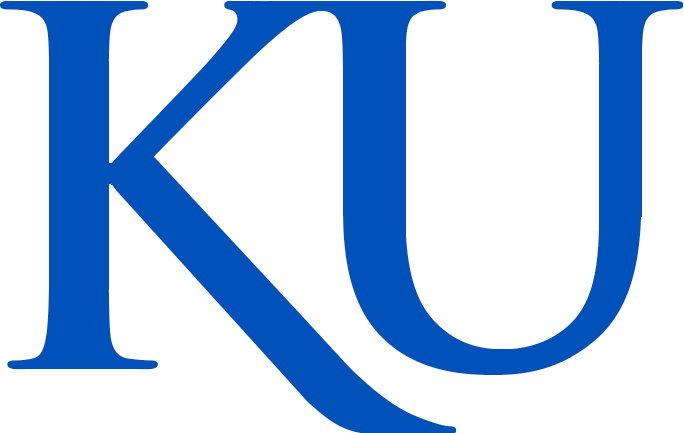
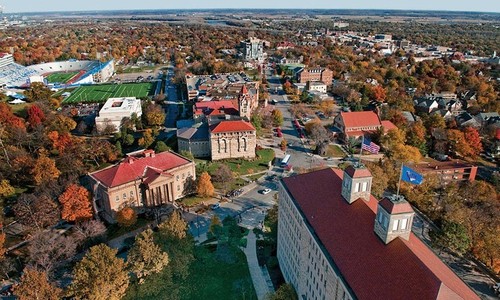
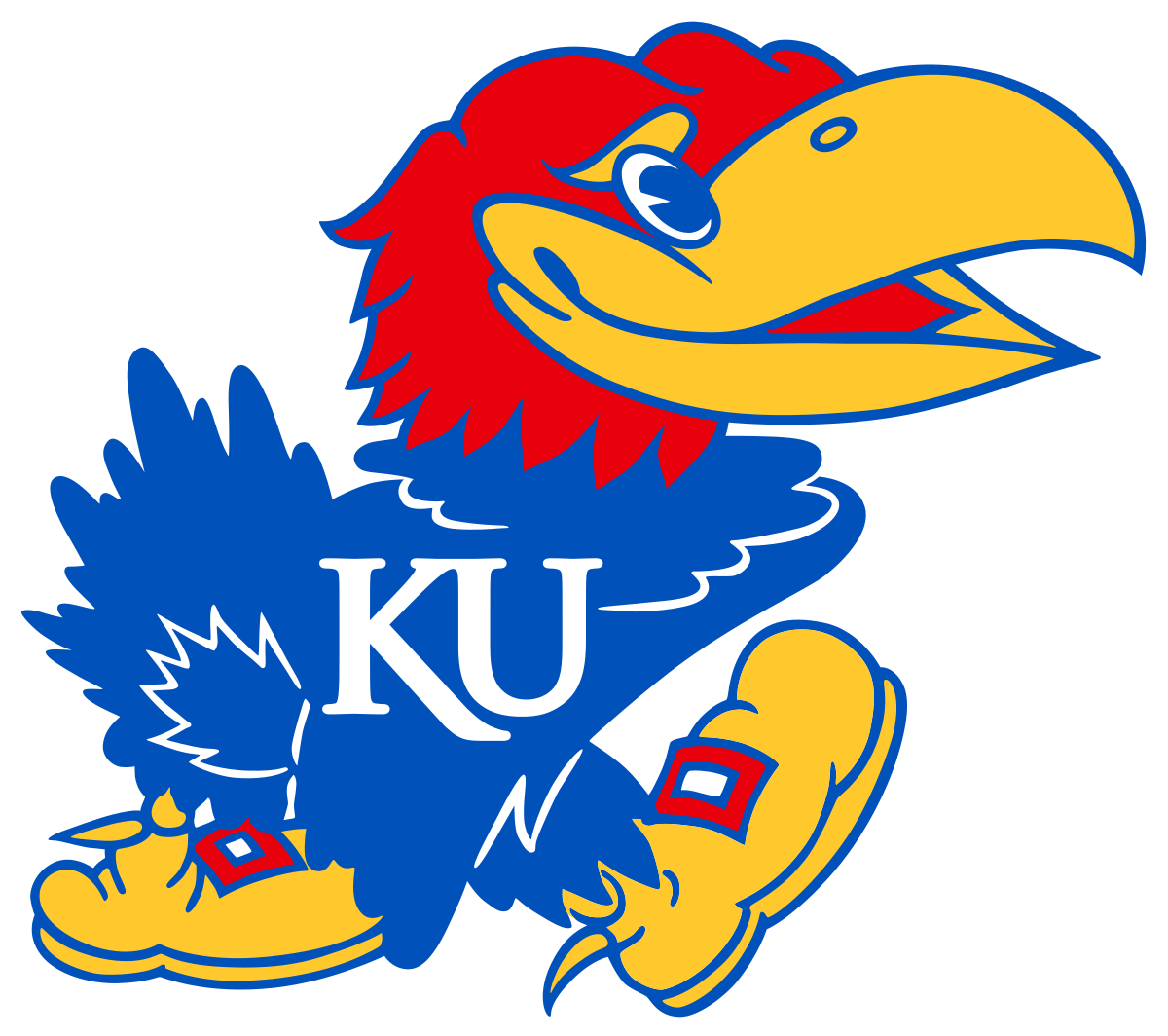
| Short description of the institution | Located on a scenic campus in the center of the United States, the University of Kansas (KU) is a comprehensive research and teaching university with nearly 200 undergraduate majors. The university earns excellent ratings in the top college guides. For more than a decade, the Fiske Guide to Colleges has awarded KU four‐star ratings in all categories – academics, quality of living, and social life. KU is famous for the natural beauty of its campus, the high quality of its academic programs, reasonable cost, and diverse cultural and recreational opportunities. |
| Profile of partner institution | Focus on Business, Humanities, Science, Engineering and Economics |
| Fields of study |
Exchange students typically take courses in the following fields: Applied English Center; Architecture, Design & Planning; Arts (Visual Art, Film, Theatre and Dance); Business; Engineering; Journalism & Mass Communications; Liberal Arts (Humanities, Social Sciences, Natural Sciences) All fields are open except for Medicine, Law, Pharmacy, and Athletic Training. To find out more about classes, please visit Areas of Study |
| Participating campuses | Lawrence, Kansas – Lawrence campus only |
| Language requirements |
For undergrad studies: TOEFL ibt or TOEFL ibt Special Home Edition, Minimum Overall Score 79 or higher, with no subscore below 18. Scores must be less than two years old. For graduate studies: TOEFL ibt 80 (test center and online/at home) with minimum score of 20 on each section. Scores must be less than two years old. |
| Academic requirements |
No minimum requirement - prefer a minimum GPA of 2.5 on a 4.0-point scale (undergraduates applicants) or 3.0 on a 4.0-point scale (graduate applicants) Two academic recommendation letters included in the internal application at KIT International Students Office before the deadline (Sept 10) |
| Courses |
Our list of course offerings is online here. The schedule of classes for Fall is usually posted around February and the schedule for Spring is usually posted around September. Undergraduate students are permitted to take courses numbered 699 or below. Students must show that they meet prerequisites or have an equivalent academic background. Students cannot enroll in courses once they are full. For this reason, specific courses cannot be guaranteed prior to enrollment. Psychology courses are especially popular, so students intending to enroll in mostly psychology courses should be flexible about which psychology courses they take. |
| Semester dates |
1st semester: August - December (Fall Semester) 2nd semester: January - May (Spring Semester) 3rd semester: May – August (Summer Semester) Exchange students are only accepted for the fall or spring semesters or the academic year (August – May). |
| Visa Information | Auswärtiges Amt |
| Information for exchange students | |
| Number of students for exchange |
Unfortunately we aren't able to accept any students for 2026/27. |
| Last Update | June 2025 |
Baden-Württemberg-Programme
Diese Programme ermöglichen KIT-Studierenden einen Aufenthalt an einer der im Verbund teilnehmenden Partnerhochschulen bzw. -campus in Kanada oder den USA. Auch hier werden die Studiengebühren an der Zielhochschule vollständig erlassen.
Eine Besonderheit der Baden-Württemberg-Programme: Um die Plätze unter den teilnehmenden Studierenden bestmöglich verteilen zu können, ist es notwendig, dass Sie Flexibilität mitbringen, was die Platzierung sowie die Kurse und die Studienniveau-Einstufung angeht. Ein Baden-Württemberg-Programm eignet sich daher nicht für Studierende, die nur an eine Universität bzw. einen Campus möchten und alle anderen Universitäten bzw. Campus ausschließen.
Ontario (OBW)
| Allgemeine Informationen |
Informationen für Baden-Württembergische Studierende zum Programm und teilnehmenden Hochschulen Undergraduate-Programm [Graduate Platzierungen nur in Ausnahmefällen und mit einem akadem. Empfehlungsschreiben sowie TOEFL (kaum Plätze, in Business oder Psychologie ausgeschlossen, u.U. müssen Grad-Stud. undergraduate-Placement annehmen] |
| Hinweise zu einzelnen Universitäten | s.o. |
| Bewerbungsvoraussetzungen |
Beachten Sie die Sprachanforderungen der einzelnen Standorte (Link s.o.). |
| Anzahl max. verfügbarer Austauschplätze für KIT |
Vsl. ca. 2-4 Semesterplätze entspr. 1-2 Jahresplätze. 1semestrige Aufenthalte und 2semestrige Aufenthalte (September bis April) möglich. Wir empfehlen 2semestrige Aufenthalte, weil vier Monate einfach sehr kurz sind und eine Verlängerung vor Ort nicht mehr möglich. |
| Letzte Aktualisierung | Juni 2025 |
California State University (CSU)
| Allgemeine Informationen |
Das Landesprogramm Kalifornien besteht seit dem Jahr 1995 und ermöglicht Studierenden aus Baden-Württemberg und der California State University einen Studierendenaustausch. Als größtes, öffentliches, vierjähriges Universitätssystem in den USA hat die CSU 23 Standorte und über 480.000 eingeschriebene Studierende in ganz Kalifornien.
Austauschstudierende, die die Voraussetzungen erfüllen, können bis zu einem akademischen Jahr studiengebührenbefreit (tui-tion free) auf Undergraduate-Level (Bachelorniveau) studieren. Das Programm richtet sich damit an Bachelor-Studierende. Grundsätzlich können nur Kurse auf Bachelorniveau ausgewählt und belegt werden. Ausnahmen sind möglich, können aber nicht garantiert werden.
Aufgrund der Restriktivität der Business Schools sind Platzierungen in Business sehr schwierig, wohingegen Platzierungen in Engineering leichter sind.
About the California State University/Baden-Württemberg Student Exchange Program
Bei der Auswahl eines CSU-Campus und der zu studierenden Fächer/Kurse sollten Studierende die CSU-Campusprofile und die CSU-Campus und Course Selection Guidelines beachten. Auf den Webseiten und in den Guidelines sind die „impacted“ Fächer (die nicht für Austauschstudierende zur Verfügung stehen) und die „restricted“ Fächer (für die nur eine begrenzte Anzahl von Bewerber*innen zur Verfügung steht und die stark umkämpft sind) aufgeführt. Dies soll Studierenden bei der Auswahl geeigneter CSU-Campus helfen. |
| Bewerbungsvoraussetzungen |
*Campus will accept TOEFL iBT Special Home Edition test scores due to COVID-19 pandemic
|
| Anzahl Austauschplätze fürs KIT | ca. 2 Semesterplätze. Vorauss. Jahresaufenthalte (Fall + Spring Semester) bevorzugt, Semesterplätze (Fall oder Spring Semester) möglich. |
| Letztes Update | Jun 2025 |
Connecticut (CT)
| Allgemeine Informationen |
Informationen zum Programm Aufgrund der Restriktivität der Business Schools sind Platzierungen in Business sehr schwierig, wohingegen Platzierungen in Economics oder Engineering leichter sind. |
| Hinweise zu einzelnen Universitäten |
University of Connecticut (UCONN): Die meisten Plätze im Landesprogramm gibt es an der UCONN. Austauschstudierende belegen Kurse am Campus Storrs. Keine offizielle Zulassung mit Graduate Student Status, Besuch von Graduate Kursen ist aber möglich. Wichtige Ausnahme: Graduate studies im Bereich Management sind ausgeschlossen, da diese am Hartford-Campus stattfinden. Areas of study:
Der Besuch von Kursen in den Bereichen Education, Jura, Medizin, Pharmazie, Nursing, Social Work, Fine Arts ist ausgeschlossen. Applicants must have the minimum equivalent of a 3.0 on a 4.0 Grade Point Average (GPA) scale. TOEFL iBT Minimum 79/120; min. 19 in each subsection. A list of courses currently being offered can be found at UConn Course Catalog. Weitere Einschränkungen an der UCONN:
Central Connecticut State University: vsl. 2-3 Plätze für ganz BaWü, undergraduate und graduate prinzipiell möglich; https://www.ccsu.edu Eastern Connecticut State University: vsl. 3 Plätze für ganz BaWü, undergraduate und graduate prinzipiell möglich; https://www.easternct.edu/ Southern Connecticut State University: Platzzahl für 2026/27 ungewiss (undergraduate und graduate prinzipiell möglich, Nursing und Education nicht möglich, Communication schwierig, https://www.southernct.edu/ Connecticut College: vsl. 1 Platz für ganz BaWü, möglichst nur Jahresaufenthalt mit Teaching Assistantship-Stelle (wird zusätzlich bezahlt mit vsl. 4000 USD/Semester), https://www.conncoll.edu Trinity College: vsl. 1 Platz für ganz BaWü, Jahres- oder Semesteraufenthalt, vorzugsweise undergraduates (Neuroscience schwierig); https://www.trincoll.edu/ Wesleyan University: 1 Platz für ganz BaWü, kombiniert mit Teaching Assistanceship-Stelle für Deutsch (vsl. 600USD/Semester; vsl. auch Room & Board, Jahresaufenthalt), nur Graduate Studierende (advanced Bachelor or Master students). Zusätzl. Möglichkeiten für Master-Studierende in den Naturwissenschaften (z.B. Physik und Informatik) – ausgesetzt aufgrund schwieriger balance; https://www.wesleyan.edu/ Yale University: vorauss. aktuell keine Plätze |
| Bewerbungsvoraussetzungen |
|
| Anzahl max. verfügbarer Austauschplätze fürs KIT | ca. 2-3 Semesterplätze (1 Jahresaufenthalt zählt als 2 Semesterplätze). Jahresaufenthalte und Semesteraufenthalte möglich. Wir warten derzeit noch auf die Platzzahlen für 2026/27. |
| Letztes Update | Juni 2025 |
North Carolina (NC)
| Allgemeine Informationen |
Reines undergraduate-Programm, d.h. es können nur Kurse auf Undergraduate-Niveau belegt werden. Das Programm richtet sich damit primär an Bachelor-Studierende. Für Master-Studierende prinzipiell geöffnet, die dann aber in North Carolina als undergraduate eingeschrieben werden und entsprechend auch nur Kurse auf Undergraduate-Niveau belegen können.
Website des Landesprogramms North Carolina bereitgestellt von der Koordinierungsstelle des Landesprogramms auf Baden-Württembergischer Seite
Website des Landesprogramms North Carolina bereitgestellt von der Koordinierungsstelle des Landesprogramms auf North Carolina Seite |
| Hinweise zu einzelnen Universitäten |
Für das akademische Jahr 2026/
Chapel Hill und UNC Wilmington werden für Aufenthalte in 2026/27 nicht zur Verfügung stehen.
Bitte geben Sie in Ihrer Bewerbung mind. drei Wunschuniversitäten an. Sollten Sie sich für eine Universität aus der gelben Spalte bewerben wollen, dann müssen auch Alternativen aus der grünen Spalte gewählt werden: Die East Carolina University hat besonderes Interesse daran geäußert, Studierende aus Ba-Wü aufzunehmen. |
| Bewerbungsvoraussetzungen |
|
| Anzahl max. verfügbarer Austauschplätze fürs KIT |
vsl. 1 Semesterplatz für einen Aufenthalt im akademischen Jahr 2026/27. Daher NUR Semesterbewerbungen möglich, Jahresbewerbungen leider nicht platzierbar. Alle aus BaWü nominierten Studierenden werden zu einer Infosession auf Zoom eingeladen, wo das weitere Bewerbungsverfahren für North Carolina erklärt wird (voraussichtlich am Donnerstag, den 18. Dezember, Uhrzeit tba). |
| Letztes Update | Jul 2025 |
Oregon
| Allgemeine Informationen |
OSCG Webseite > Partnerhochschulen OSCG Webseite > Outgoings (BW->OR) Incoming Exchange Students | IE3 Global In erster Linie bietet dieses Programm Plätze für Undergraduate Students, wenige Platzierungen für Graduate Students nur an OSU möglich Grundsätzlich problematisch: Kurse aus Architektur, Town Planning, Psychologie, Graduate Business/Economics |
| Hinweise zu einzelnen Universitäten |
Verfügbare Plätze voraussichtlich im Wesentlichen an OSU: Oregon State University, PSU: Portland State University, UO: University of Oregon, WU: Willamette University |
| Bewerbungsvoraussetzungen |
|
| Anzahl Austauschplätze fürs KIT |
voraussichtlich 1 Person für Wintersemester (2 terms) oder Jahresaustausch (3 terms). |
| Letztes Update | Okt 2024 |
University of Massachusetts System (UMASS)
| Allgemeine Informationen |
UMass bietet derzeit nru Austauschplätze in Amherst und dort auf Masterebene. Graduate admission (and course enrollment) is limited in each department. Particularly at Isenberg School of Management and the Department of Computer Science. Platzierungen in Engineering sind leichter. UMass Amherst / IPO / Exchange Students |
| Hinweise zu einzelnen Universitäten |
Amherst: Enrollment at the Graduate level only, which may include highly qualified and advanced Bachelor students. Boston: nur undergraduate, für 2026/27 vsl. keine Austauschplätze Dartmouth & Lowell: für 2026/27 vsl. keine Austauschplätze |
| Bewerbungsvoraussetzungen |
|
| Kurse | Find Courses | International Programs Office | UMass Amherst |
| Weitere Infos für Austauschstudierende |
|
| Anzahl max. verfügbarer Austauschplätze fürs KIT |
ca. 6 Semesterplätze fürs akademische Jahr. Jahres- und Semesterbewerbungen möglich. Austauschplätze für 2026/27 weiterhin erstmal beschränkt auf Amherst. |
| Last Update | July 2025 |
*In Anlehnung an die Sprachregelungen des Auswärtigen Amts umfasst die obige Liste Staaten, Provinzen oder Territorien. Sie spiegelt keine Position hinsichtlich der Staatsqualität eines Landes oder einer Region wider.
Für Erstinformation oder Fragen zur Bewerbung: overseas∂intl kit edu

















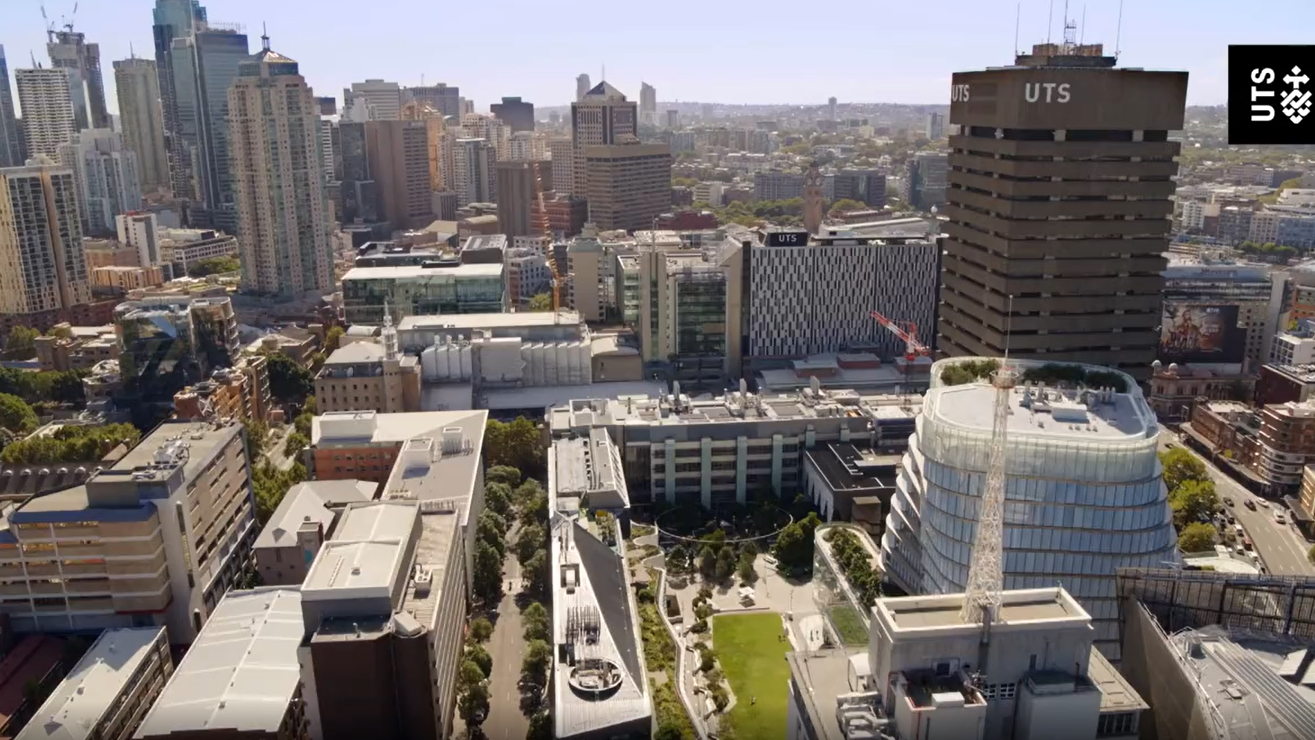
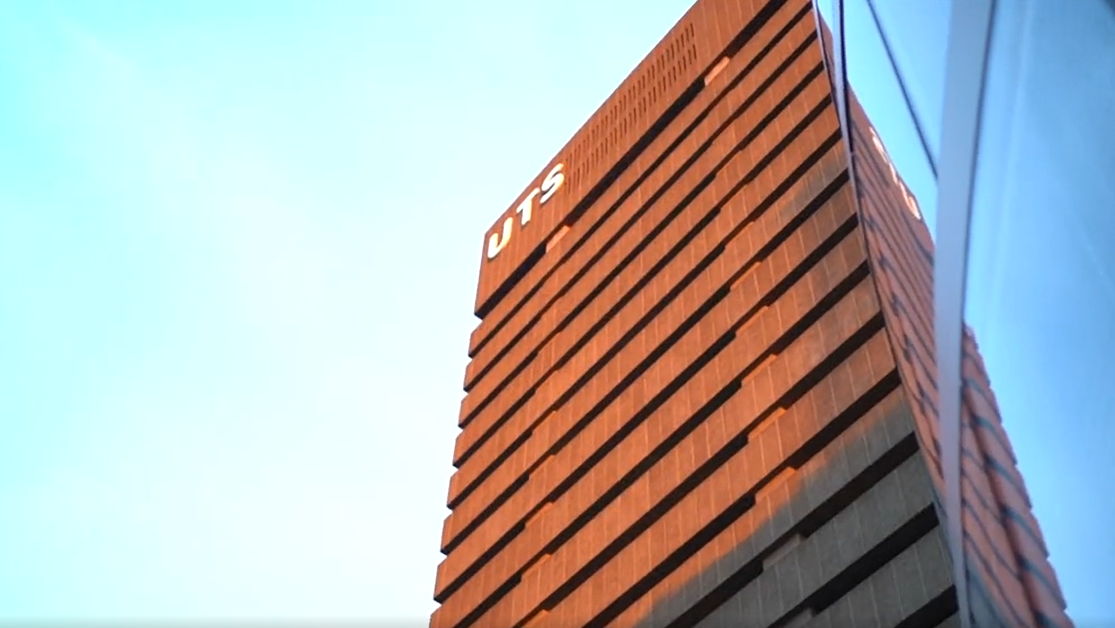
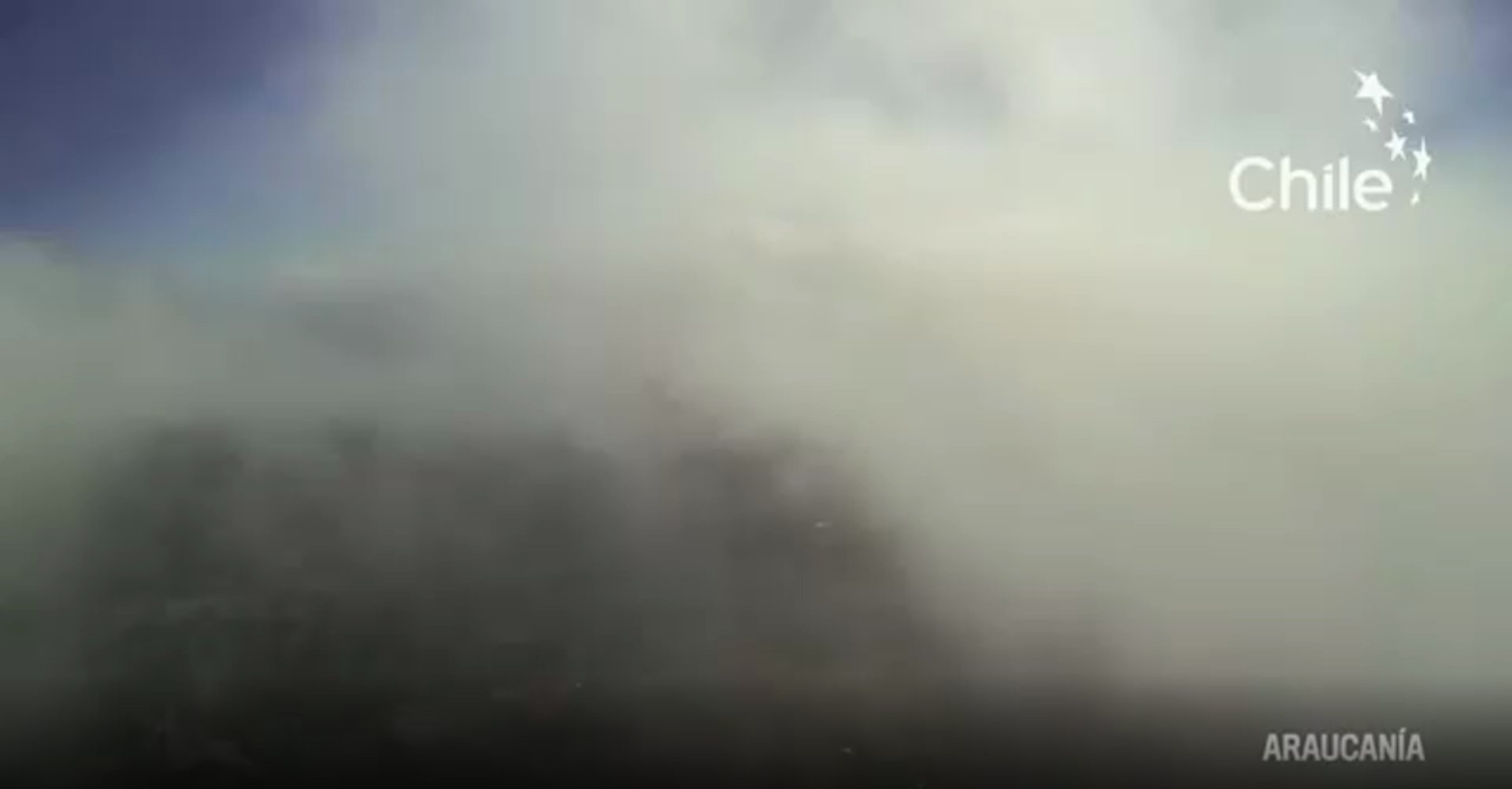
 Indien
Indien Israel
Israel Japan
Japan Kanada
Kanada